My Search For A Better Alternative To Old Folks Homes In Singapore: Are Overseas Retirement Homes Better?
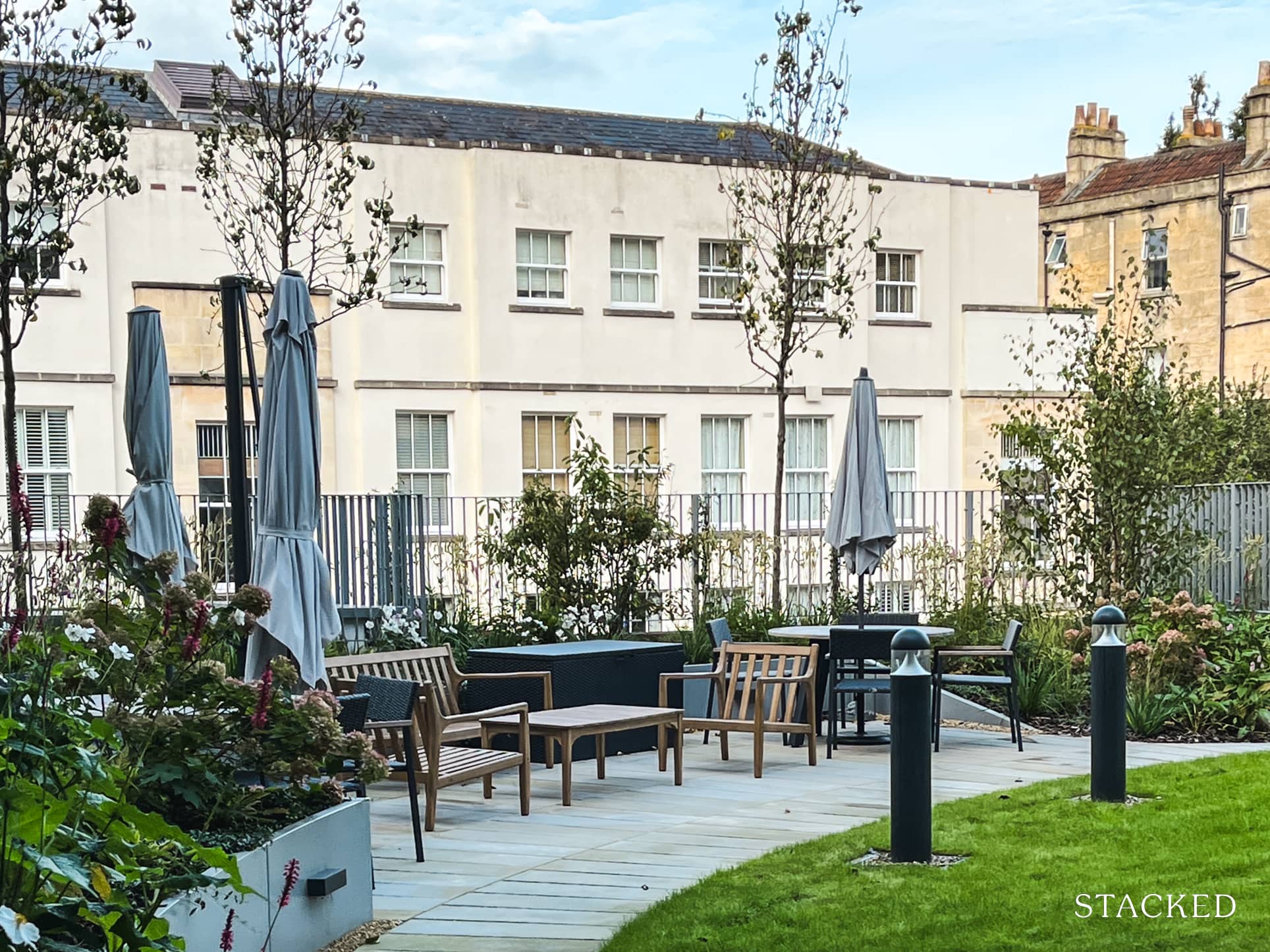
Get The Property Insights Serious Buyers Read First: Join 50,000+ readers who rely on our weekly breakdowns of Singapore’s property market.
TJ's interest in property was sparked after returning from the UK- where balconies are not counted in one's square footage!- and finding that the Singapore property had totally changed in the 7 years she was away. When not reading and watching articles & videos about property, she is busy cooking and baking for friends, family & her blog Greedygirlgourmet
My Mother spent over 30 years of her life staying with and caring for her own mother. When she was no longer needed, she had to move out of the house in which she had stayed for almost half her life and suddenly learn to live alone. After so many years of being part of “a pair,” and doing many things together, suddenly staying alone in a new place would have been extremely difficult since she was already in her 70s.
And, so, I moved back from London to live with her. Kicking and screaming, no doubt, and in desperate need of a suitable multi-generational home but nonetheless, I “dutifully” came home. This continued a cycle that many Singaporeans will be familiar with, in which people move in with their children in their old age.
This makes me wonder: as someone with no children, what will happen to me when I grow old? As Singapore ages, and more of us don’t have kids, this question is on many minds. (There have been a few articles in the papers about this issue at large.) This piece, by the way, is not meant to be a social commentary on whether having or not having children is “better” but rather an exploration of the housing alternatives open to a not-young person who is childless (or who does not want to live with one’s children), and still able enough to be independent, but wants more community and support.
Bear with me, and I’ll explain why the situation is relevant and different from that of an elderly person with a family below (in case it’s not obvious.)
According to my extended relatives, the outlook for a childless (or child-free, depending on how you look at it!) person is bleak:
- one will be lonely (because “family is best”)
- one will be poor (due to not having financial support from children)
- And, of course, one will be miserable in one’s senior years.
Having lived in the UK for over a decade, where many elderly citizens lead rich and fulfilling lives alone, my outlook is somewhat different. For example, I know a lovely lady who, despite having children, CHOSE to stay on her own, half the country away from her kids, as she wanted to remain independent, even in her 90s – despite having lost her sight! (Her choice was, no doubt, facilitated by the fact that the UK provides such people as herself with a strong support system. For one, she was assigned a carer who would check in on her.)
Nonetheless, I acknowledge that my relatives have a point. For most of us, there will, unfortunately, most likely come a time in life when one’s faculties, abilities, and even social circle start declining. The traditional model in Singapore is to stay with one’s children, have them watch out for you, and be included in their social activities. What are the options for the childless/child-free in Singapore, where the social structure is tailored to families?
After many panicked calls to my friends later, these are the conclusions we arrived at. Sad to say, as with many things in life, most of these options will involve having substantial financial resources. As such, the article may be a little non-inclusive, but I do think it’s good for younger people who foresee being old and alone to have an idea of how much savings they will need to accumulate to live the kind of life they want when they age since they will not have financial support.
Here are the “traditional” options in Singapore:
- Hire someone to live with you: Stay alone in an HDB and, if you can afford it, have a helper. (Alternatively, if you have the means, you can even stay in a condo or landed house. Nonetheless, age is a great equaliser: regardless of whether you live in private or public housing, we all if we are lucky, reach a point in time in our lives where we will need at least a little extra help to get along.)
- Move to an old folks home: Alas, although there have been significant improvements in the last few years, the quality of life in a retirement home in Singapore is not as high as that in the UK. It’s not cheap and there’s often a waitlist. (According to this Singsaver article, it will cost you between S$4,000-S$6,500 if you want a room for yourself.) In addition, these homes often cater to the elderly who need a very high degree of care, such as those suffering from dementia. How about the abled-elderly? Many of us are ageing more actively now – we may need some help, but also more autonomy than a traditional old folks home can provide.
Hence, the following different (and maybe more expensive) options that my friends and I came up with. You will need a degree of lucidity and physical ability to enjoy them, so they’re not for the extremely old and infirm.
- Stay on a cruise ship: as there are so many crew members aboard the ship, they function somewhat similarly to having a helper. (No, they won’t help you cook, or do whatever chores you ask your helper to do. However, for many single elderly, having a helper is a preventative measure- i.e. to have someone around 24/7 to, say, call the ambulance if one collapses. And the cruise ship crew can perform a similar function, since they’re around all the time, and get to know you pretty well if you’re living abroad 365 days a year.) This may sound avant-garde in Asia, but it’s not unheard of in the States, where some senior citizens have sold their homes and now live permanently on board.
A few even find that they save money this way, something not unimaginable given how expensive property currently is. (This will, of course, depend on how posh the ship you choose is. I contacted several cruise ship companies and the figures can range widely, depending on one’s lifestyle.) According to Smartasset, this lifestyle starts from US$77,000 a year, i.e. about US$6,416 a month. Not a small sum for sure but keep in mind that this includes utilities, food, and entertainment so it may not be more expensive than living in a condo in Singapore, given how high mortgages are these days, once everything is added up.
Now, staying on a cruise ship is such a large topic, that it needs its own article. Today’s (rather long) piece is about a different type of elderly-friendly accommodation option, so I won’t say more about this. If you’d like to find out more about spending your golden years on a cruise ship, please let me editor know in the comments! - Stay in a hotel or serviced apartment: again, this sounds exorbitant, but I found some (decent) places (in Singapore) which start from about S$200 a day. Utilities are included, but not laundry and food, so this will set you back S$6,000++ a month. (Some places do offer guests a discount on food.)
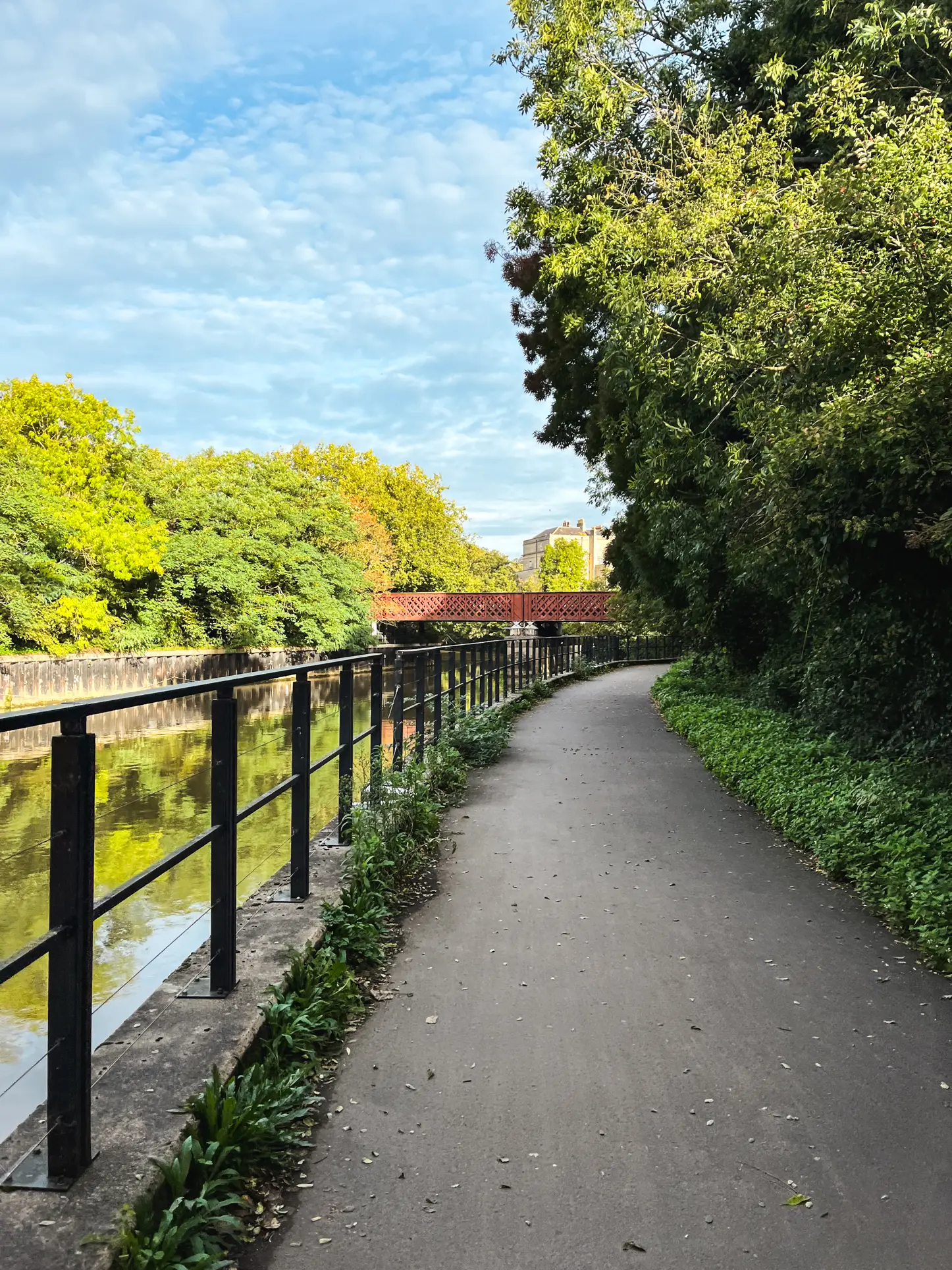
I was still pondering this issue, when I was in Bath, UK and saw this advertisement for apartments just for the elderly. Maybe this provided the answer to my future problem? (I am not affiliated in any way to the developer, by the way, it was purely serendipity that I came across it!)
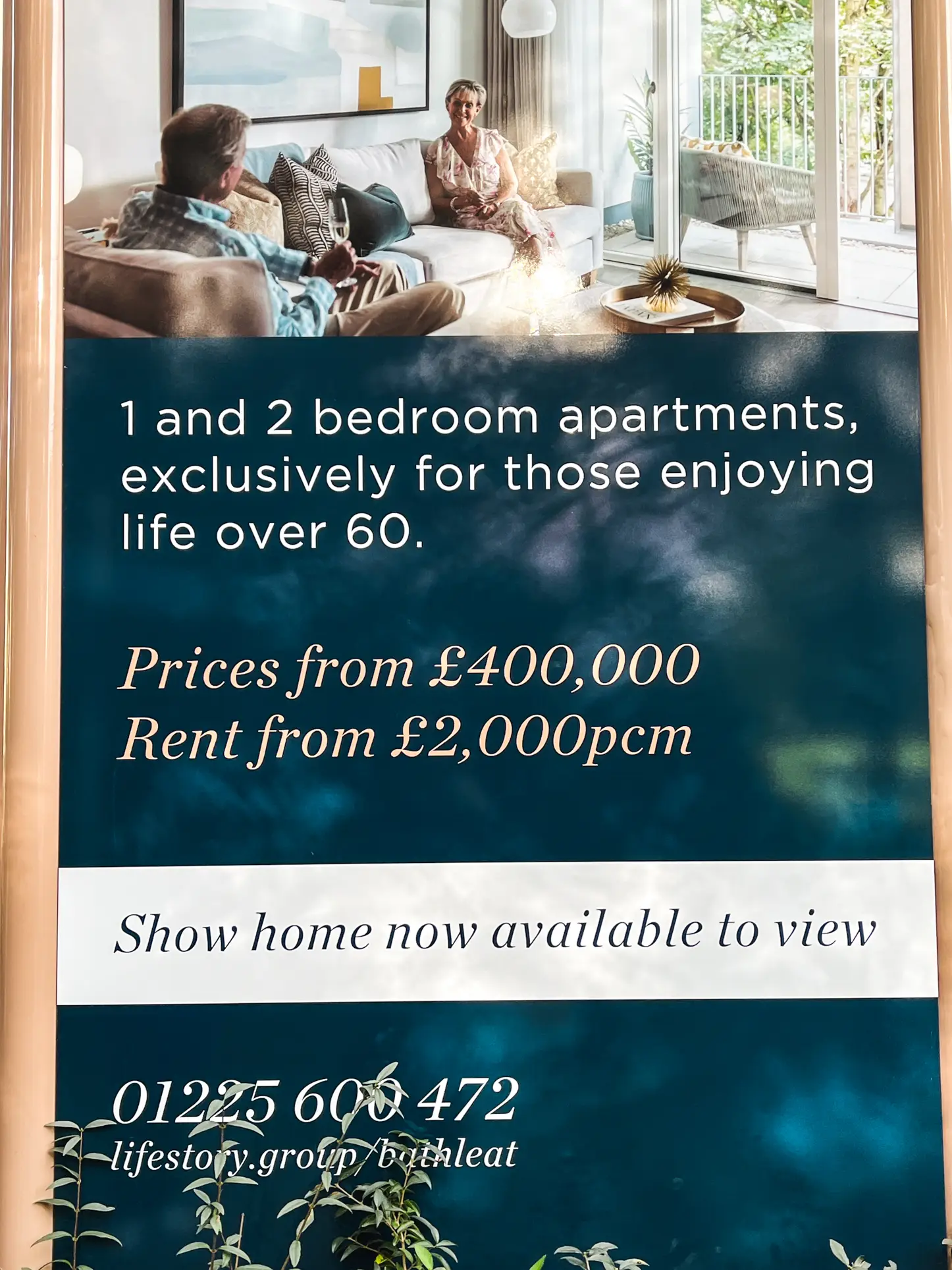
(If you’re single, you can’t get a BTO, and thus the cheapest accommodation you can buy is a resale HDB. To be exact, the £400,000 worked out to S$678,000 at the time of writing i.e. a little less than a resale 4-room HDB in prime areas (and definitely much cheaper than a condo.)
More from Stacked
Is It Time To Refinance From An HDB Loan To A Bank Loan?
After almost seven years of consecutive decline, the HDB resale market seems to have turned a corner. They hit a…
Then: “£2,000 to rent? (i.e. about S$3,390 at the time of writing) Didn’t an HDB rent out for S$7,600 last year?” And yes the $7,600 was for a 5-room flat in Tanjong Pagar. According to an HDB report, the lowest HDB rental (2-room flat in Woodlands) starts from S$2,300. Nonetheless, it’s always interesting to explore alternatives.
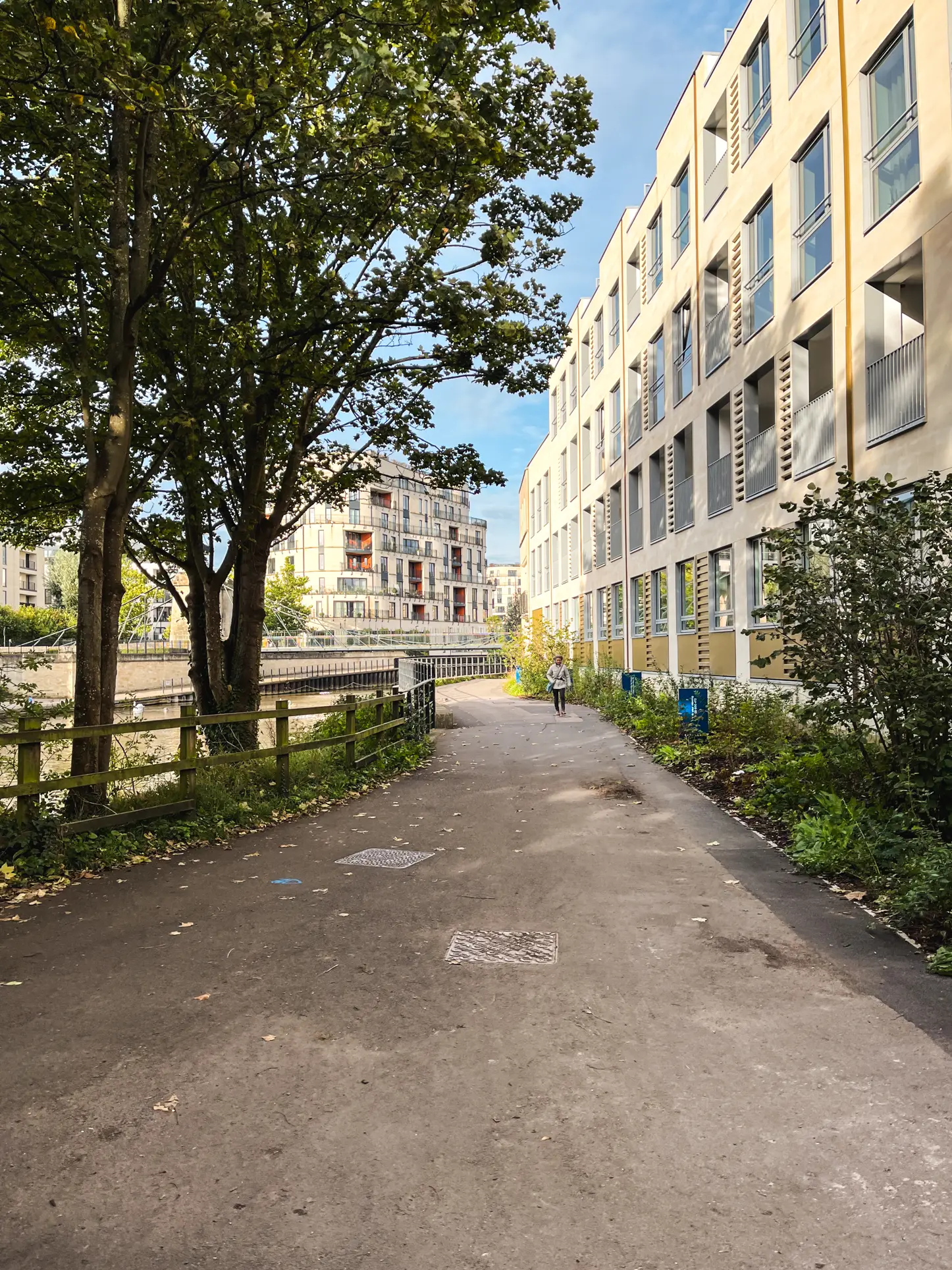
Now, we’ve all known for years that property is often cheaper outside Singapore – though note that Bath is quite a posh part of the UK with many lovely restaurants and the most beautiful setting – so the focus here isn’t so much on the pricing. Rather, it’s on the fact that there are (very nice) apartment complexes dedicated to the elderly.
Call me ignorant, but this blew my mind: of course, I knew that the UK had very good retirement villages, but I wasn’t expecting to see a complex only for those above-60s right in the centre of Bath (you can think of it as River Valley if Bath were Singapore) where the above-60s are enabled to live out their golden years independently in the middle of society, instead of being shuffled off to a corner. It’s somewhat similar to co-living, but with age restrictions. (Refreshing, since co-living in Singapore is more tailored to the young.)
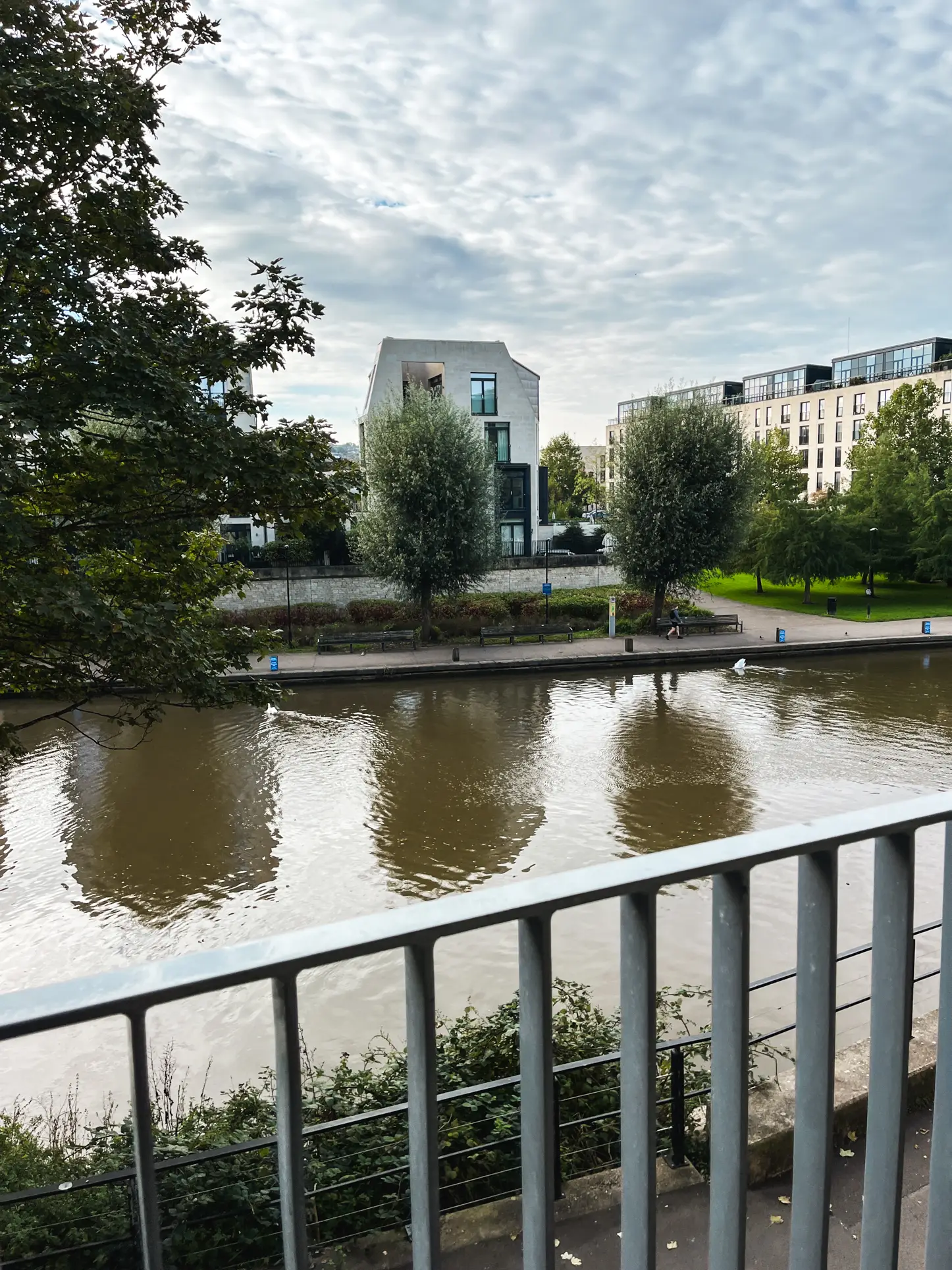
Now, Singapore has been working on something similar. There are Community Care apartments for Singaporean citizens 55 and above, but an HDB of 32 square metres in size is hardly comparable to a riverfront apartment, in my mind. And, yes, a smaller space means less to clean as one ages but sometimes one wants/needs more space, even if it’s only as a buffer from the noise of one’s neighbours. After all, at 55, many are still fit enough to enjoy having a bit more space for one’s self.
There are also a few Assisted Living facilities in SG but they’re usually oversubscribed and starting from about S$4,600 to S$5,800 (US$3,400 to US$4,300) (if you want to live in private housing.)
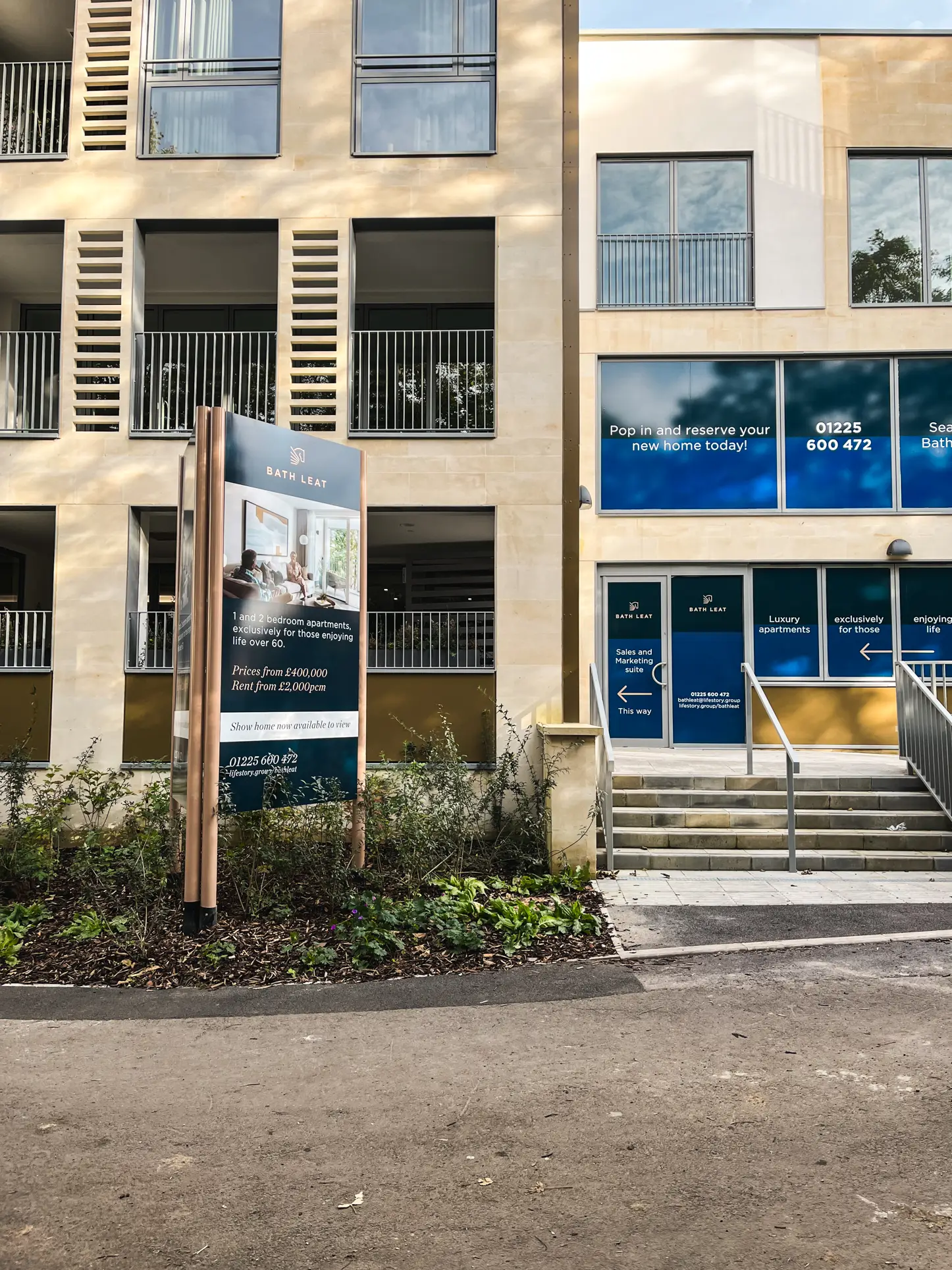
Hence, I duly scheduled an appointment with the developer to see what these Bath above-60 apartments were all about! By the way, I’m not promoting the sale of these apartments – as I mentioned in my earlier articles on London property, investing in UK property is not for the faint-hearted, and there are lots of things one needs to be aware of before making the commitment.
Here’s a quick introduction to the Pegasus Bath Leat project: these are retirement homes, which can only be bought or rented if one is above a certain age. The Bath complex stipulates 60 years of age, but different projects have different entry ages. In my opinion, this is a great way for older people to have access to a community of like-minded people!
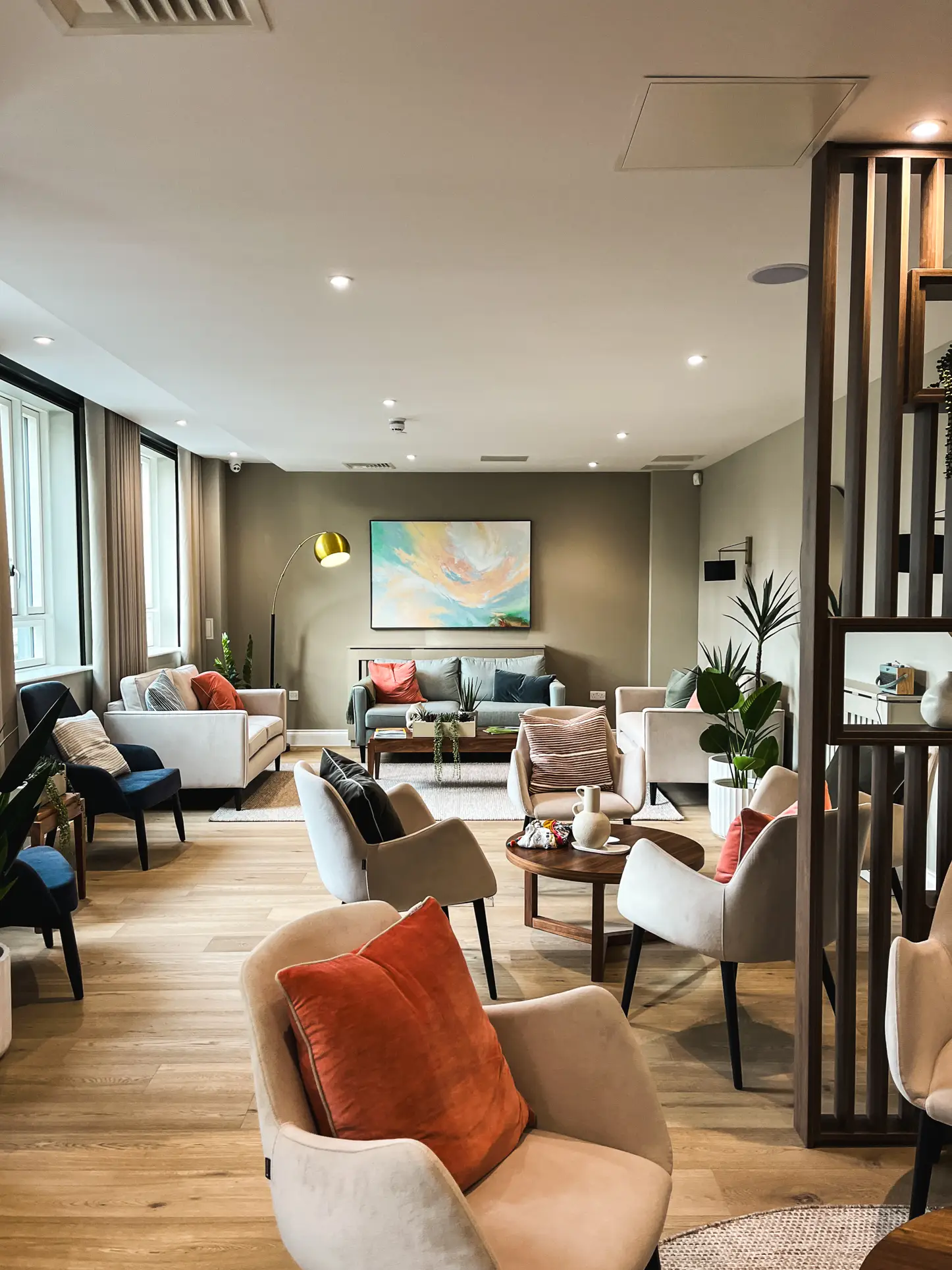
To encourage community, there is an Owners Lounge where residents can relax and hang out with each other. (No obligation to visit the lounge if one is an introvert, of course.)
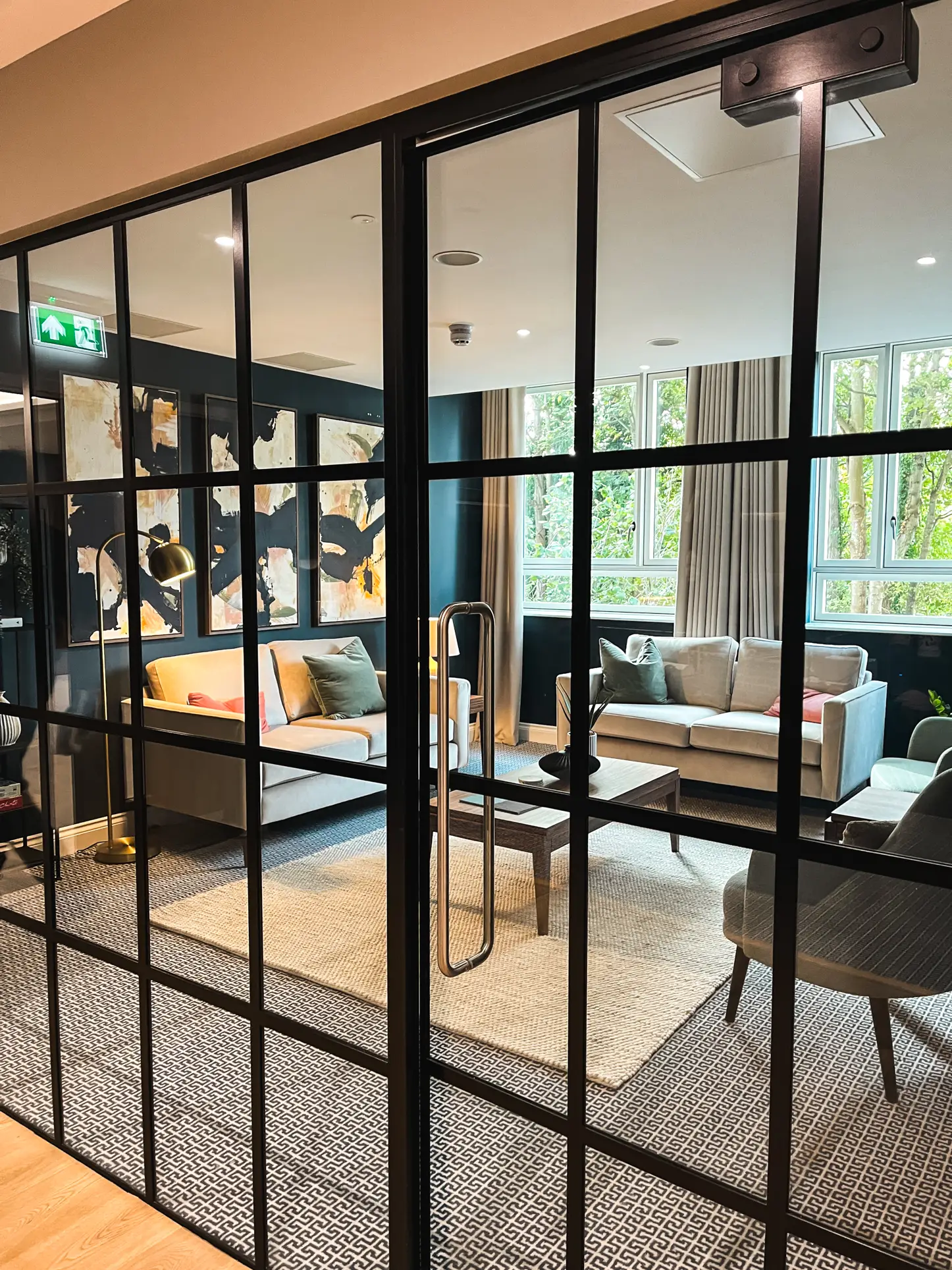
Events for the residents are held as well. For example, there have been a few painting and wine nights organized in the last year. Many of the complexes have active social committees (but it will vary from project to project) so resident’s social calendars can be filled up with away days and book club meetings.
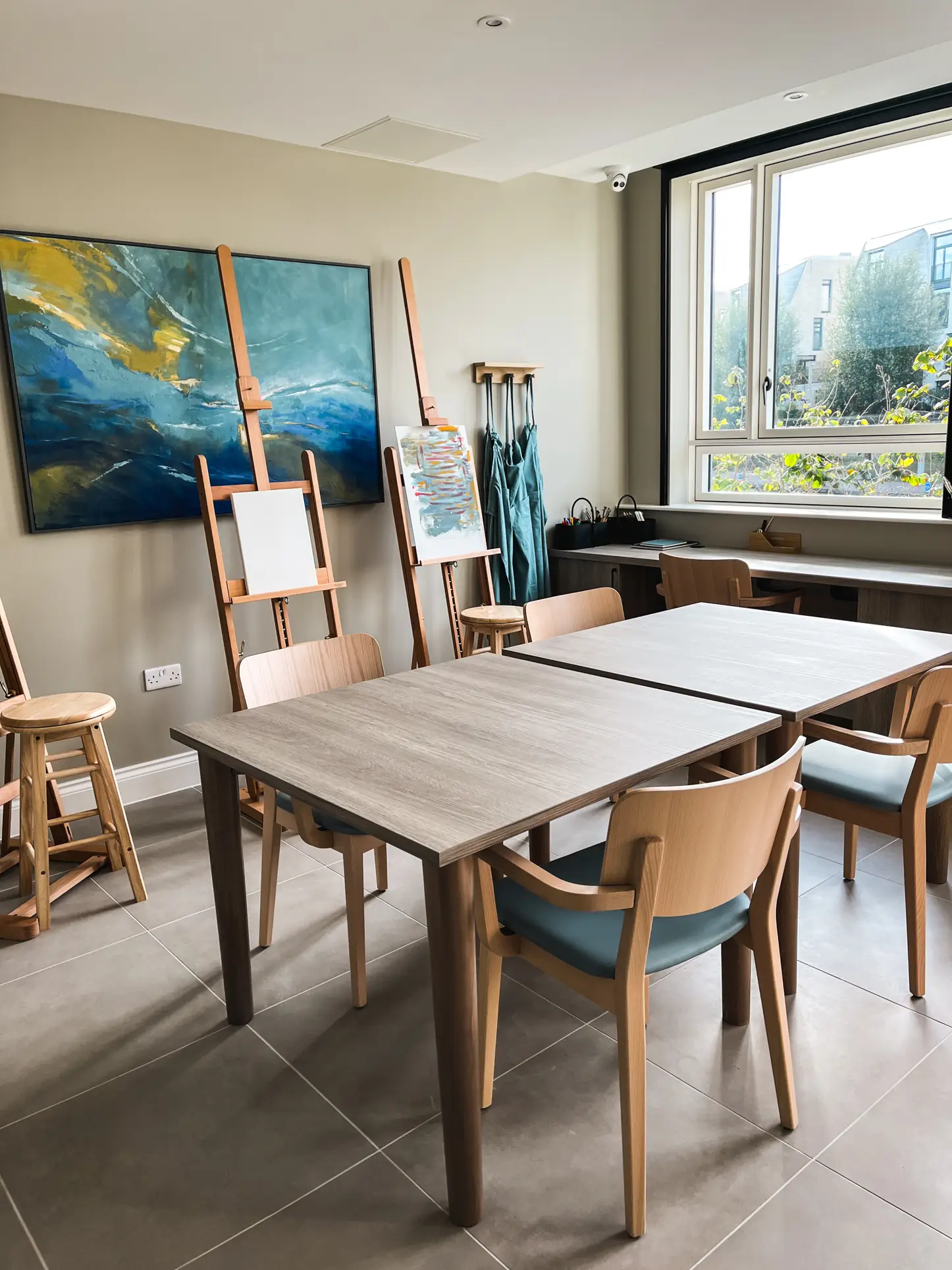
The homes are also built with an emphasis on wellness for seniors: the complex has a gym, sauna, steam room, spa, hydrotherapy pool, massage room, movement studio (with classes!) etc. It’s like the equivalent of a posh condo in Singapore, but designed to accommodate people above 60. (Different projects will have slightly different facilities offered.)
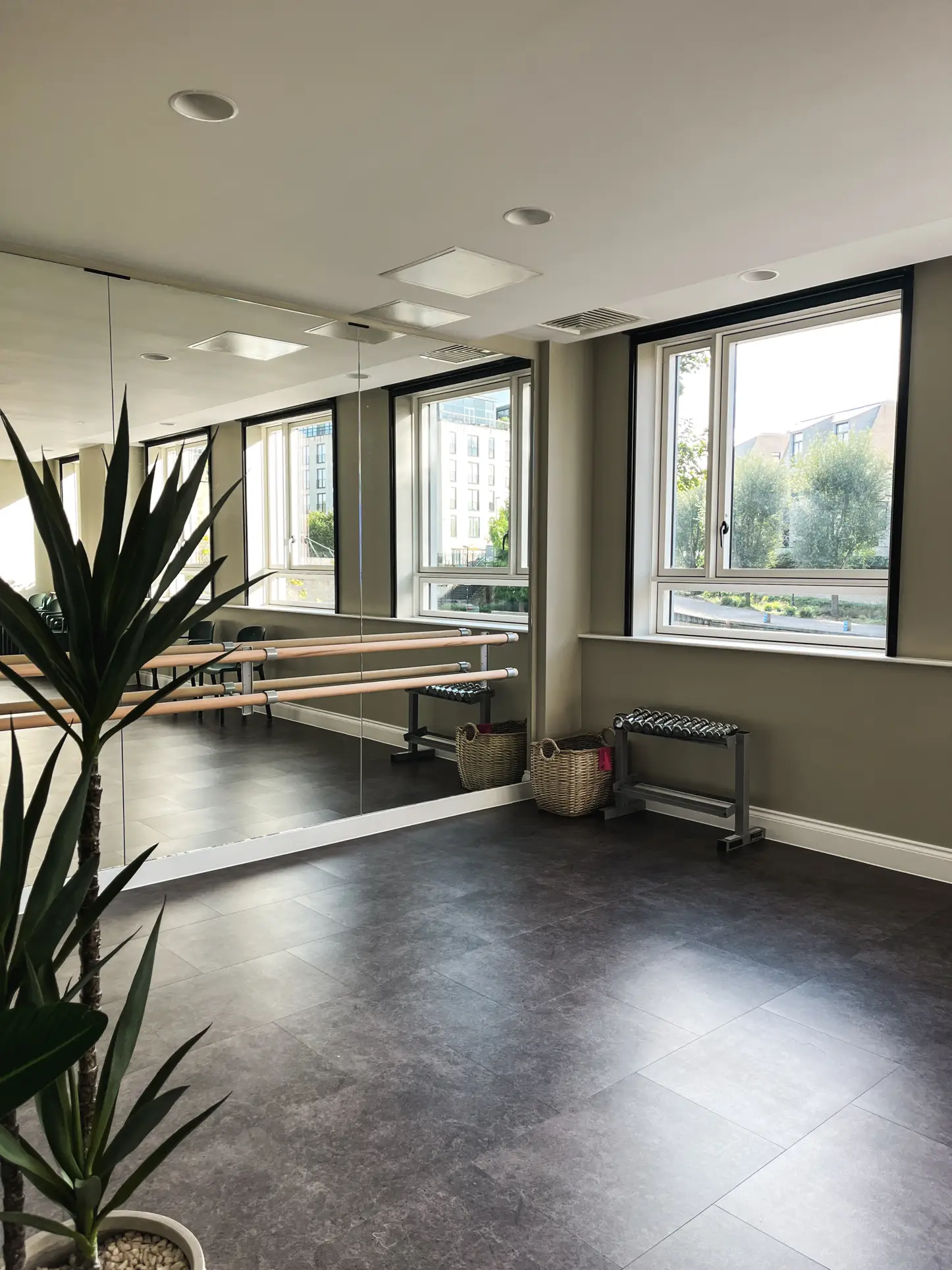
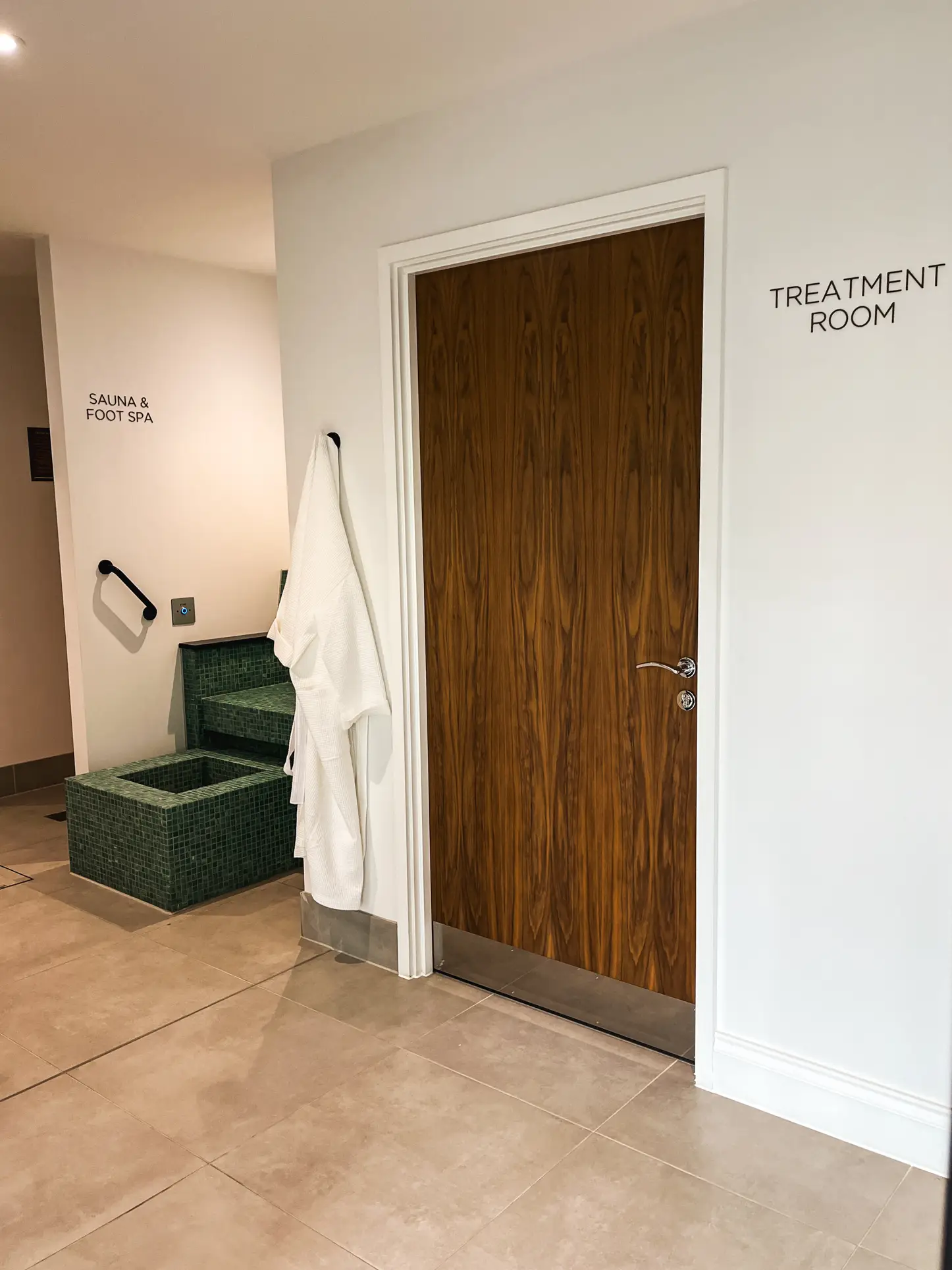
There are even two guest rooms on site, which guests of residents can rent for a VERY modest fee. This strikes me as a terrific solution to the problem of hosting visitors when one’s flat is too small! I wish condominiums in Singapore would have such rooms to let out! It’s like having a communal guest room.
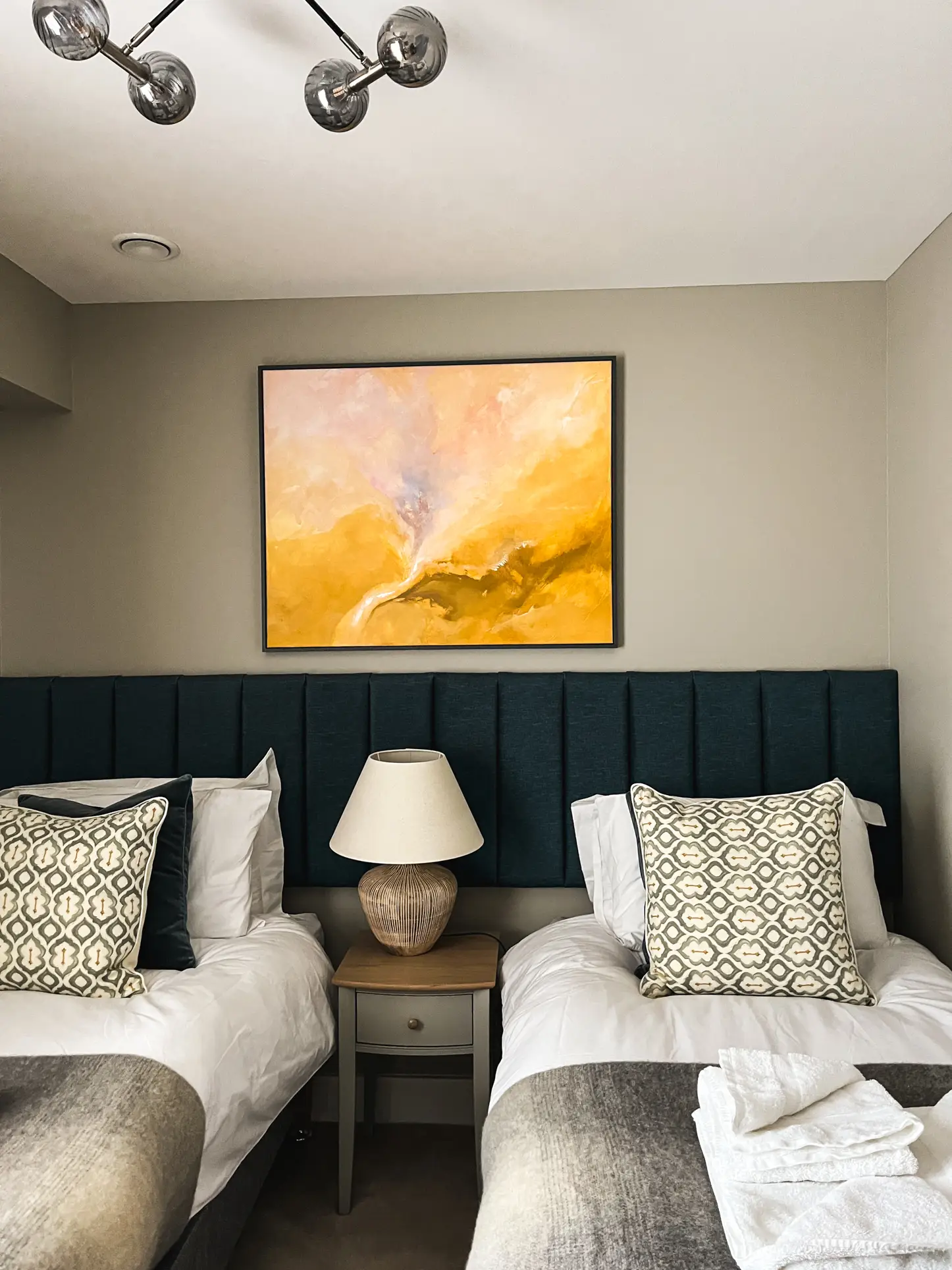
And, of course, the apartments are designed to make life as convenient as possible for older people. There are the small details that make life more convenient, such as having the oven built at standing height (instead of below waist level and having to bend down to get things) Similarly, the dishwasher is top-down, so one doesn’t need to bend.
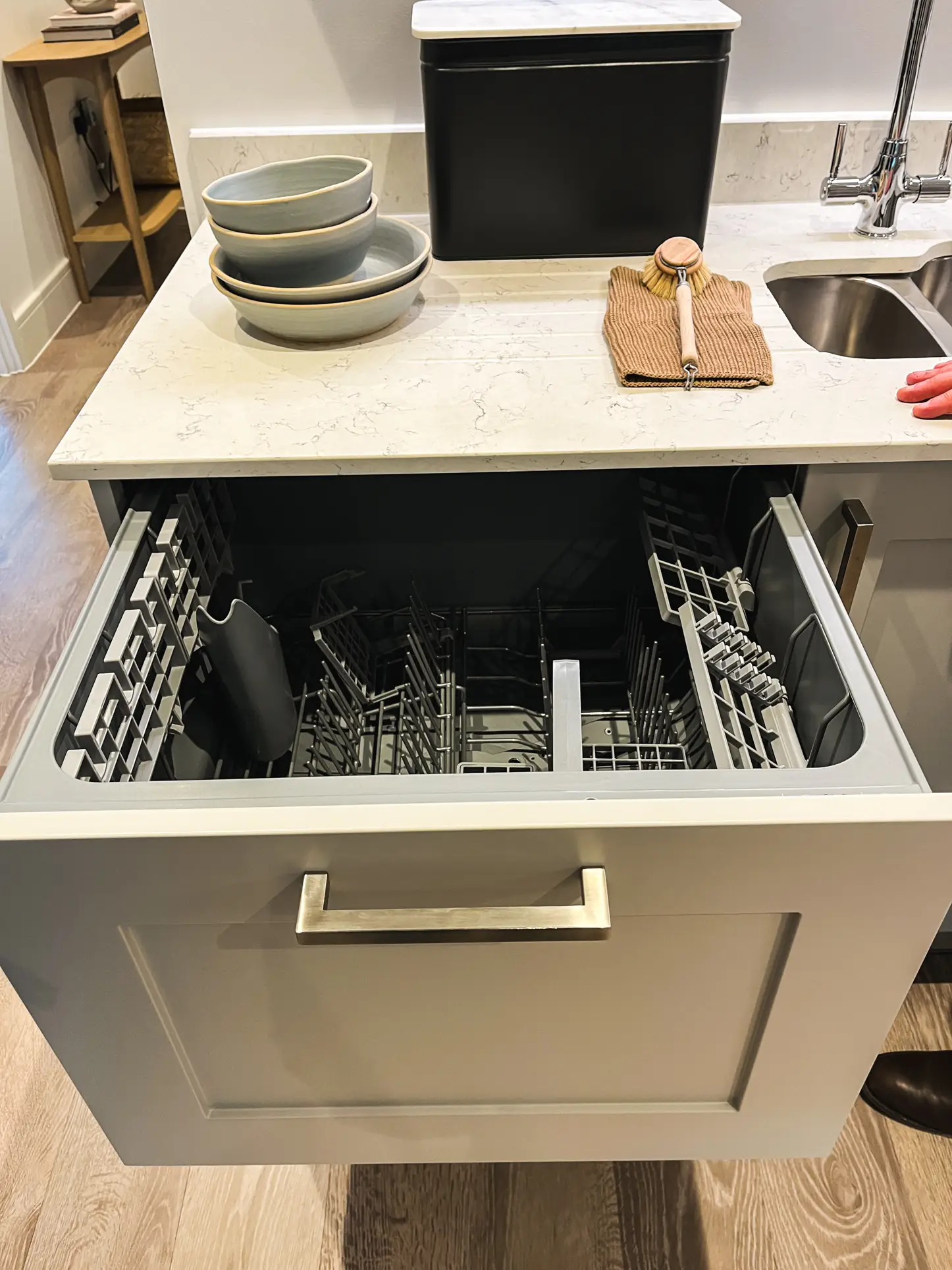
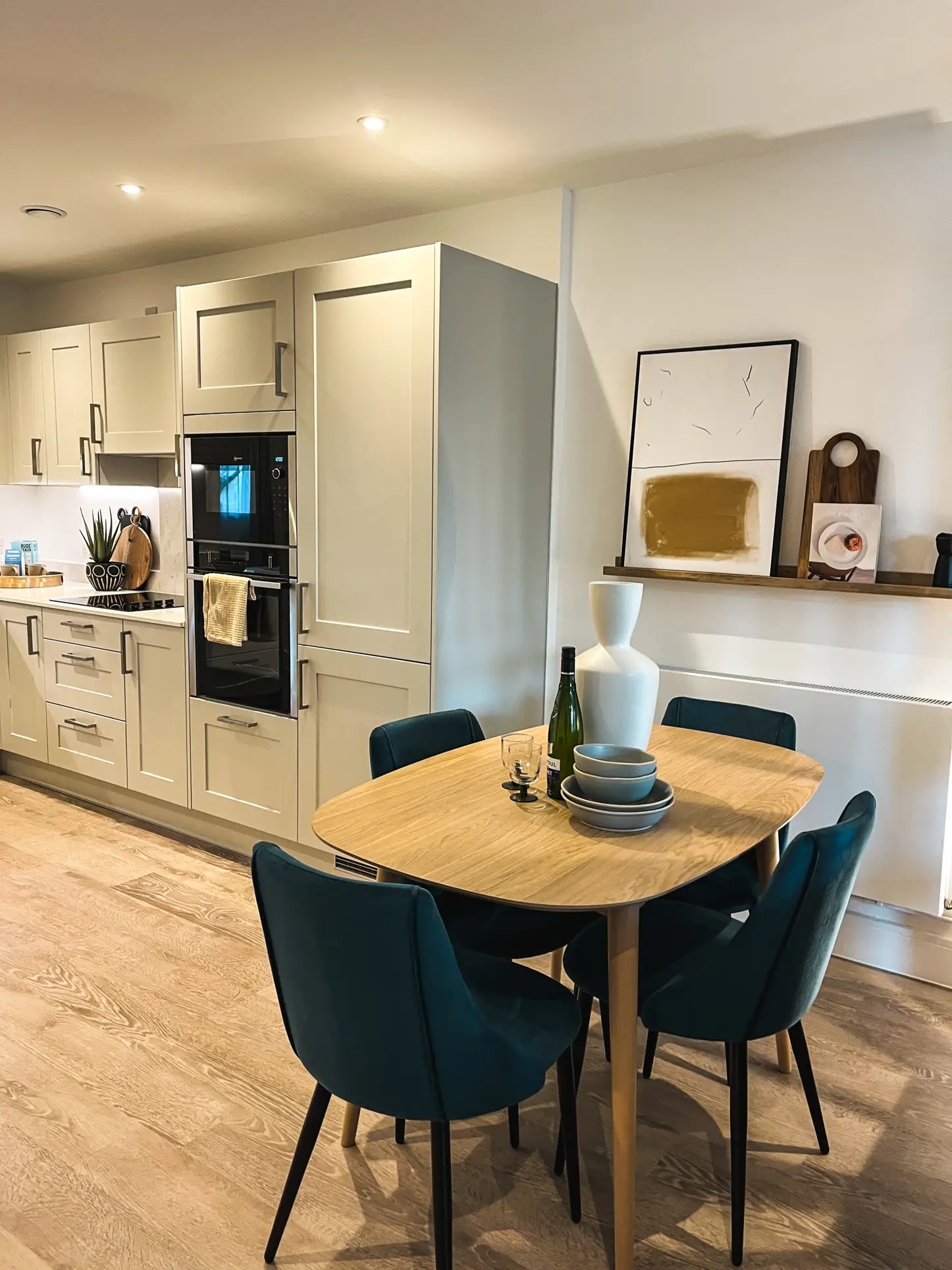
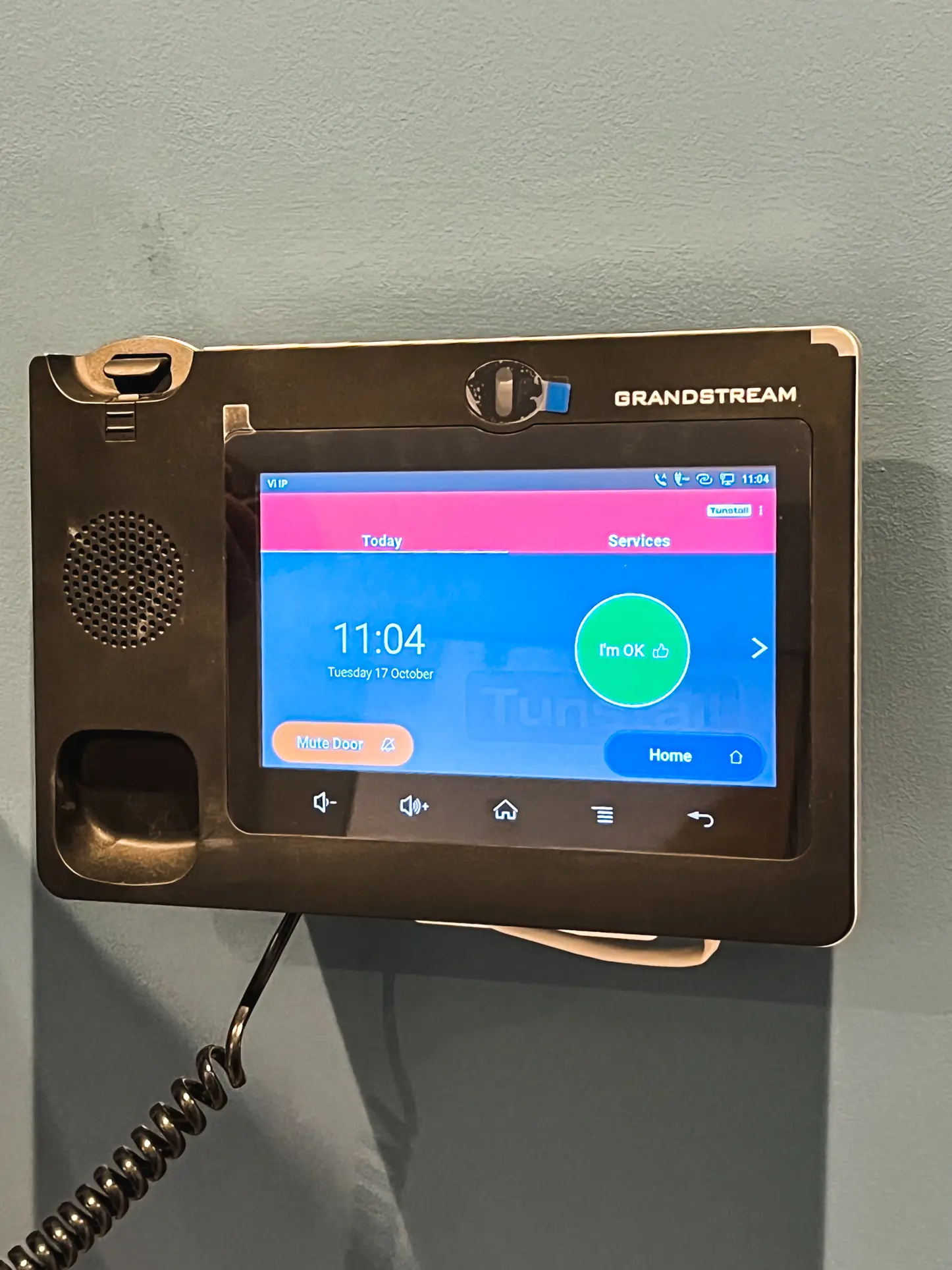
Since hiring a helper is quite cost-prohibitive in the UK (not to mention, for some, intruding on one’s privacy), in case of emergencies, each apartment is equipped with a pendant to call for help. As the cost of hiring a helper in Singapore rises, this would be a good option to have in Singaporean condos, in my opinion.
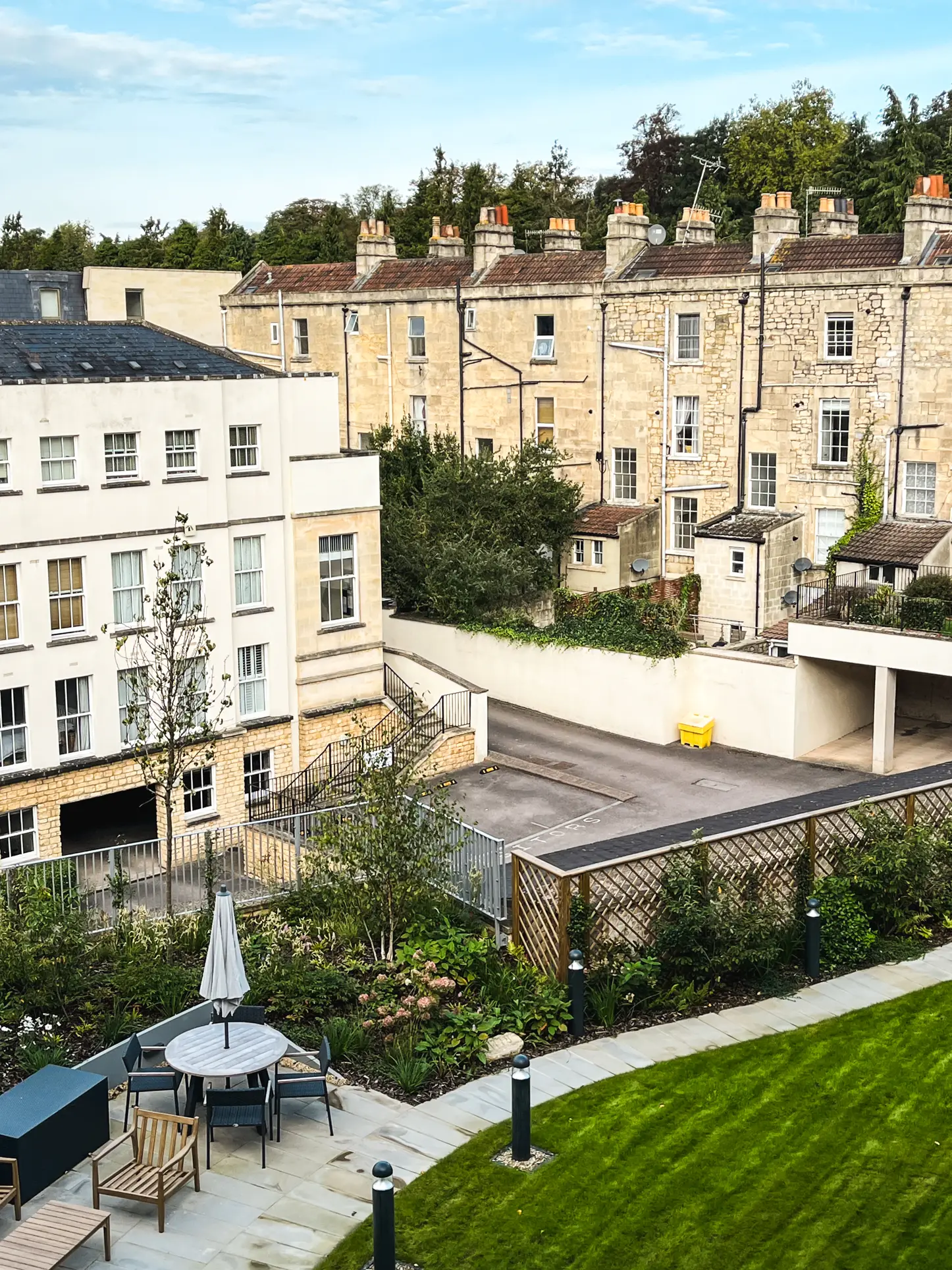
To make life more convenient for days when residents are not feeling up to a trek into town, the complex also has an on-site cafe. More importantly, the developer has relationships with care providers, so caregiving services can be arranged to enable older residents to continue ageing in place. (At an extra cost, of course.)
Sounds fabulous, doesn’t it? I wouldn’t mind growing out here (cost aside, that is.) However, there are also some things to note about retirement villages:
- This project is not unique in the UK. The developer, Pegasus Homes, has projects all over the country, from London to Newcastle. In addition, there are several other developers who specialise in such retirement homes such as Audley and McCarthy Stone, etc (so this is far from being your only option.)
- Different projects offer different levels of care, from the minimal, such as housekeeping, to round-the-clock services. (Of course, the more you want, the more you pay.)
- Some projects even have on-site salons and hairdressers.
- Such homes are very likely to be challenging to sell or rent since the buyer/renter pool is limited. (I am not recommending them as investments if you’re looking at them from a purely financial point of view. Many suffer a drop in value after the initial launch.) You also have to be careful that the developer does not impose an “exit fee” i.e. an additional fee you have to pay if you dispose of your unit.
- If you decide to buy a unit, there may be other fees such as council tax, ground rent, service charges (similar to our maintenance fees) etc. In addition, service charges are usually higher than that of a “normal” apartment.
- And, obviously, you’ll need a visa if you want to live in the UK all year round!
If you’re child-free and have planned how to live well in your twilight years, do let me know in the comments! I would love to hear about more non-traditional housing options!
TJ
TJ's interest in property was sparked after returning from the UK- where balconies are not counted in one's square footage!- and finding that the Singapore property had totally changed in the 7 years she was away. When not reading and watching articles & videos about property, she is busy cooking and baking for friends, family & her blog GreedygirlgourmetRead next from Editor's Pick
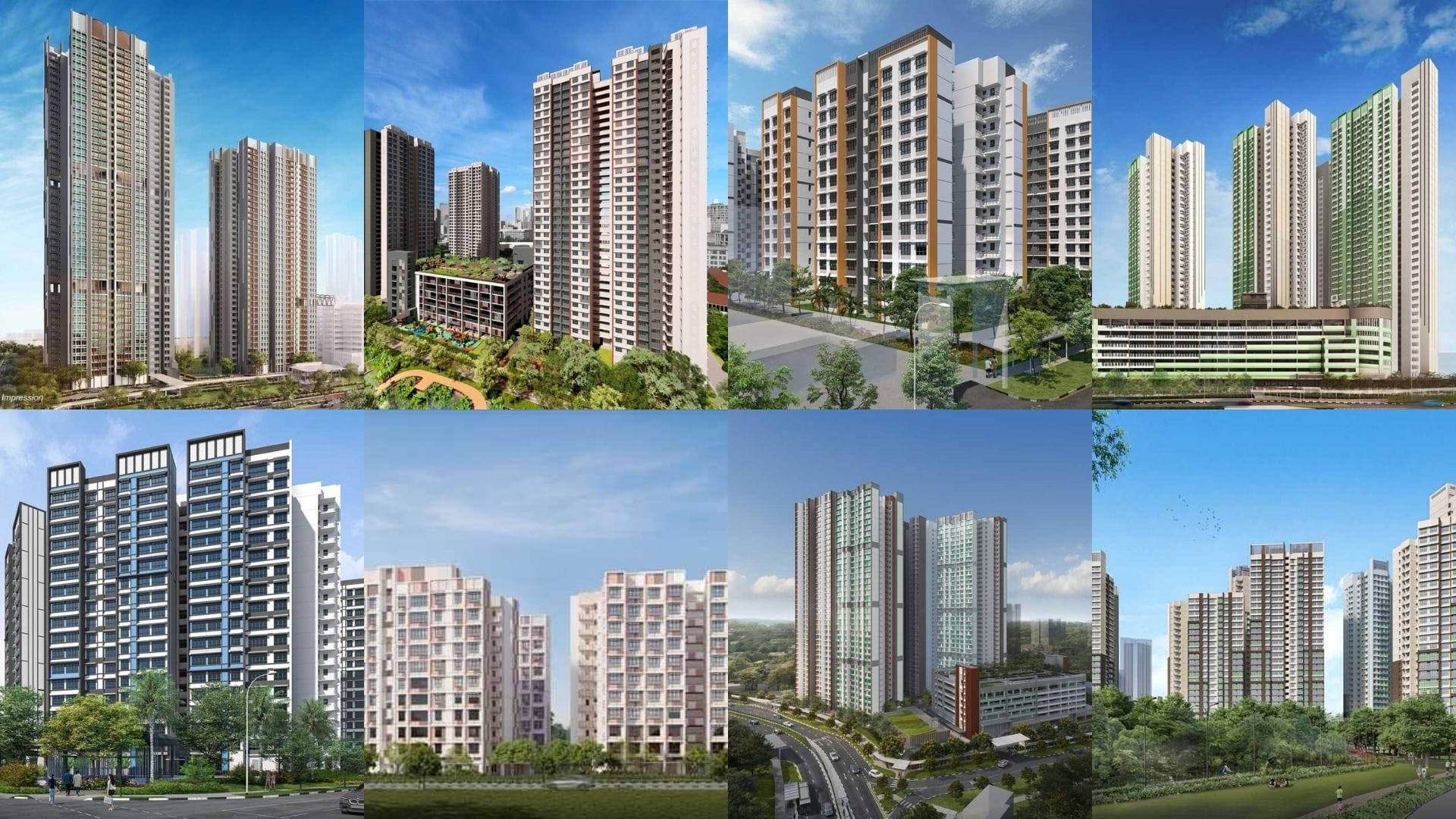
BTO Reviews July 2025 BTO Launch Review: Ultimate Guide To Choosing The Best Unit
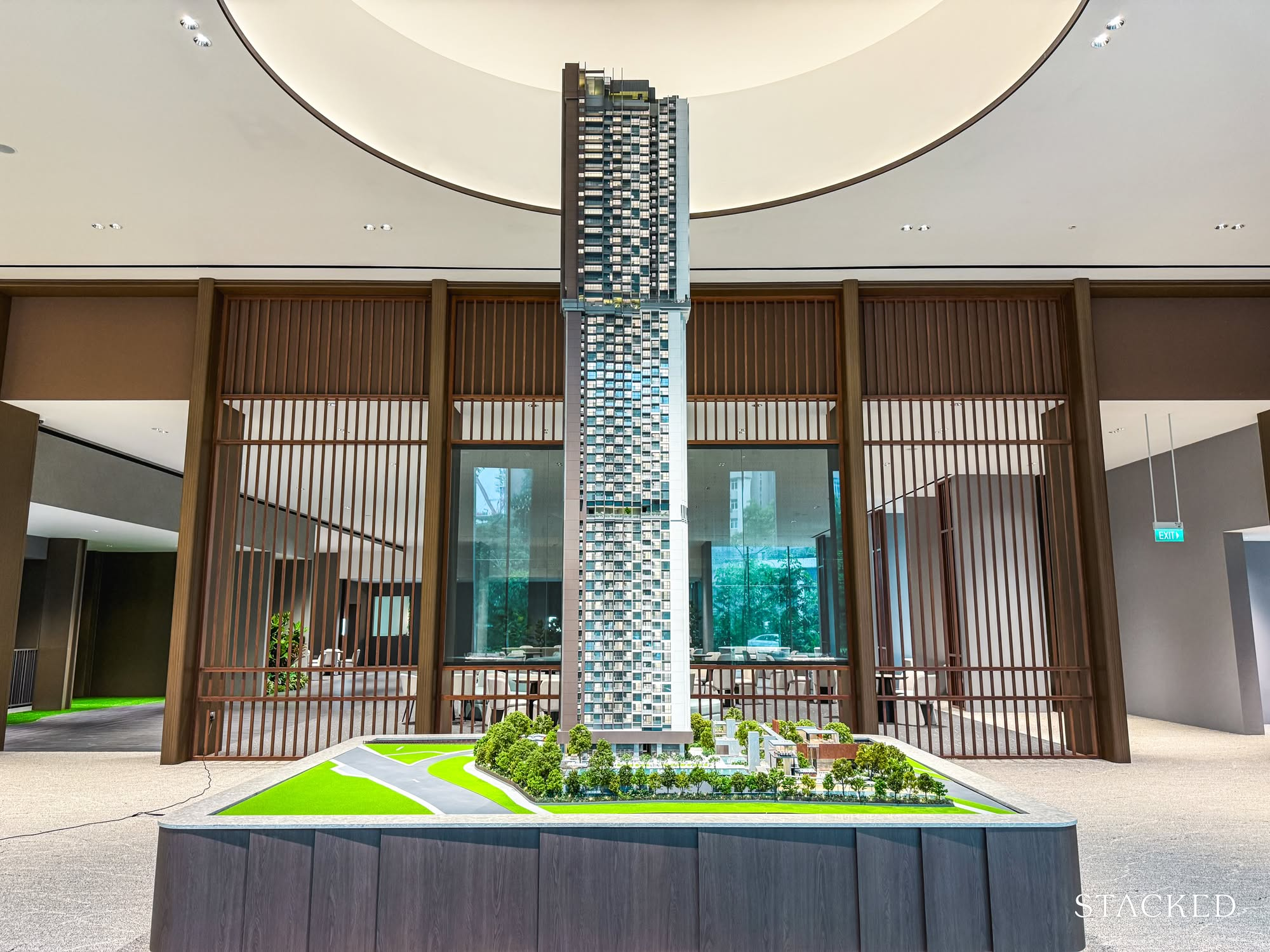
New Launch Condo Reviews Promenade Peak Review: A 63-Storey Condo in River Valley from $2,680 Psf
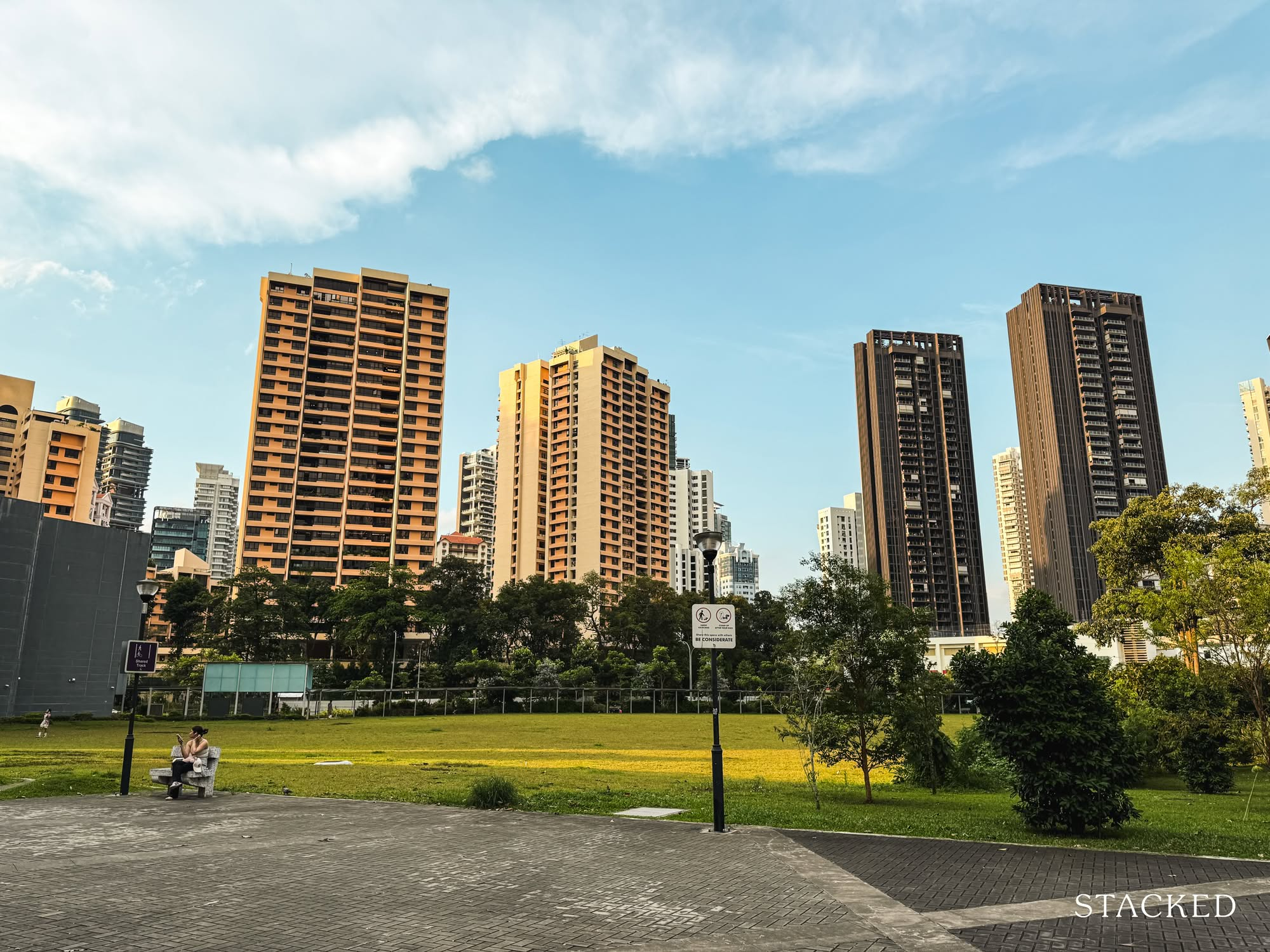
Property Market Commentary Is Great World Quietly Becoming the Place to Live in Central Singapore?
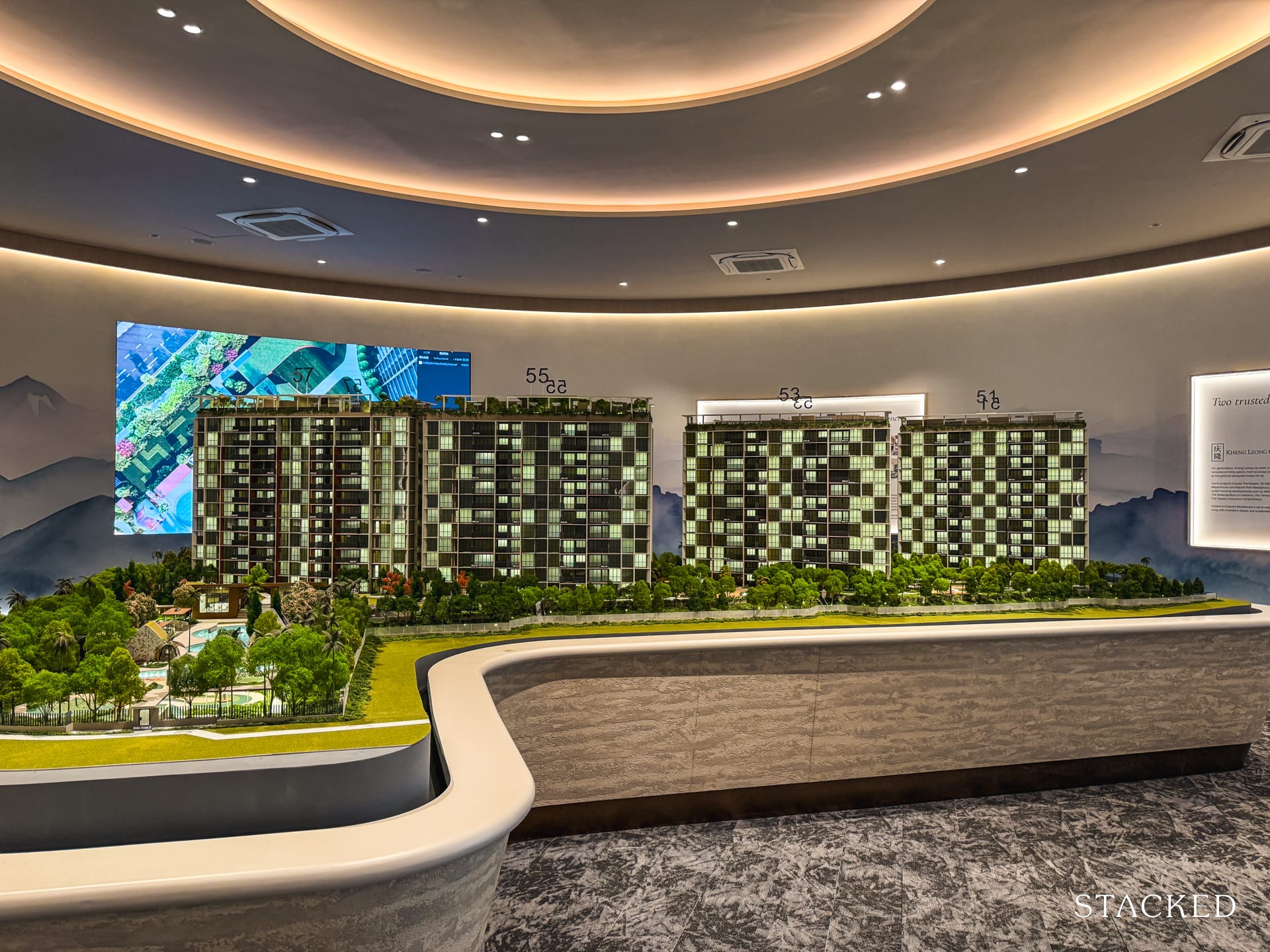
New Launch Condo Reviews Canberra Crescent Residences Review: Affordable Family-Focused Condo Starting From $1,880 Psf
Latest Posts

Property Market Commentary 10 Most Affordable New Launch Condos Under $1.5 Million—Some Are Surprisingly Central

Property Market Commentary Why I Might Still Pay $1 Million For A 50-Year-Old HDB—Even If Everyone Says It’s A Bad Buy
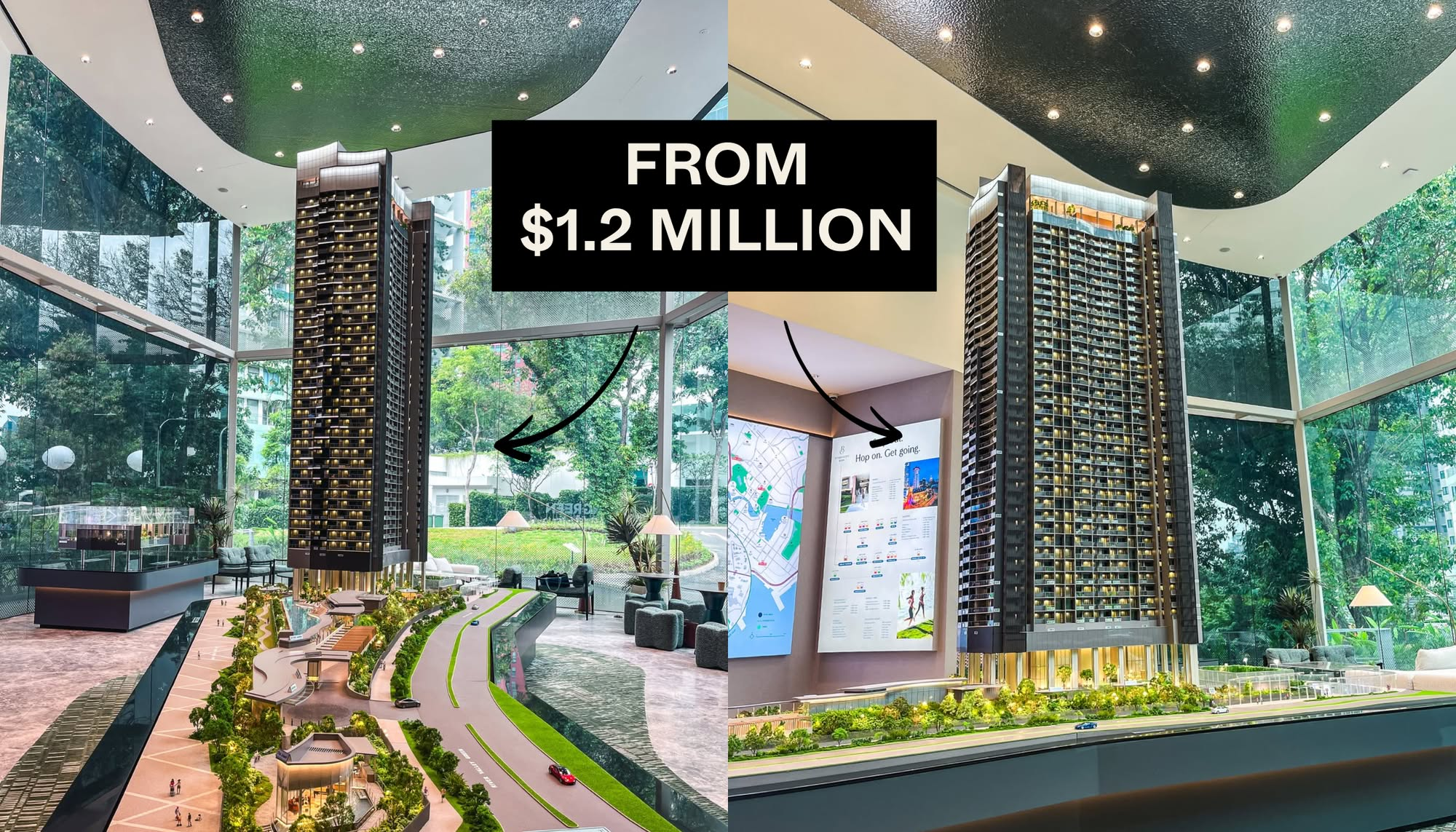
New Launch Condo Analysis A New River Valley Condo From Just $1.2M? Here’s What You Need To Know About River Green’s Pricing
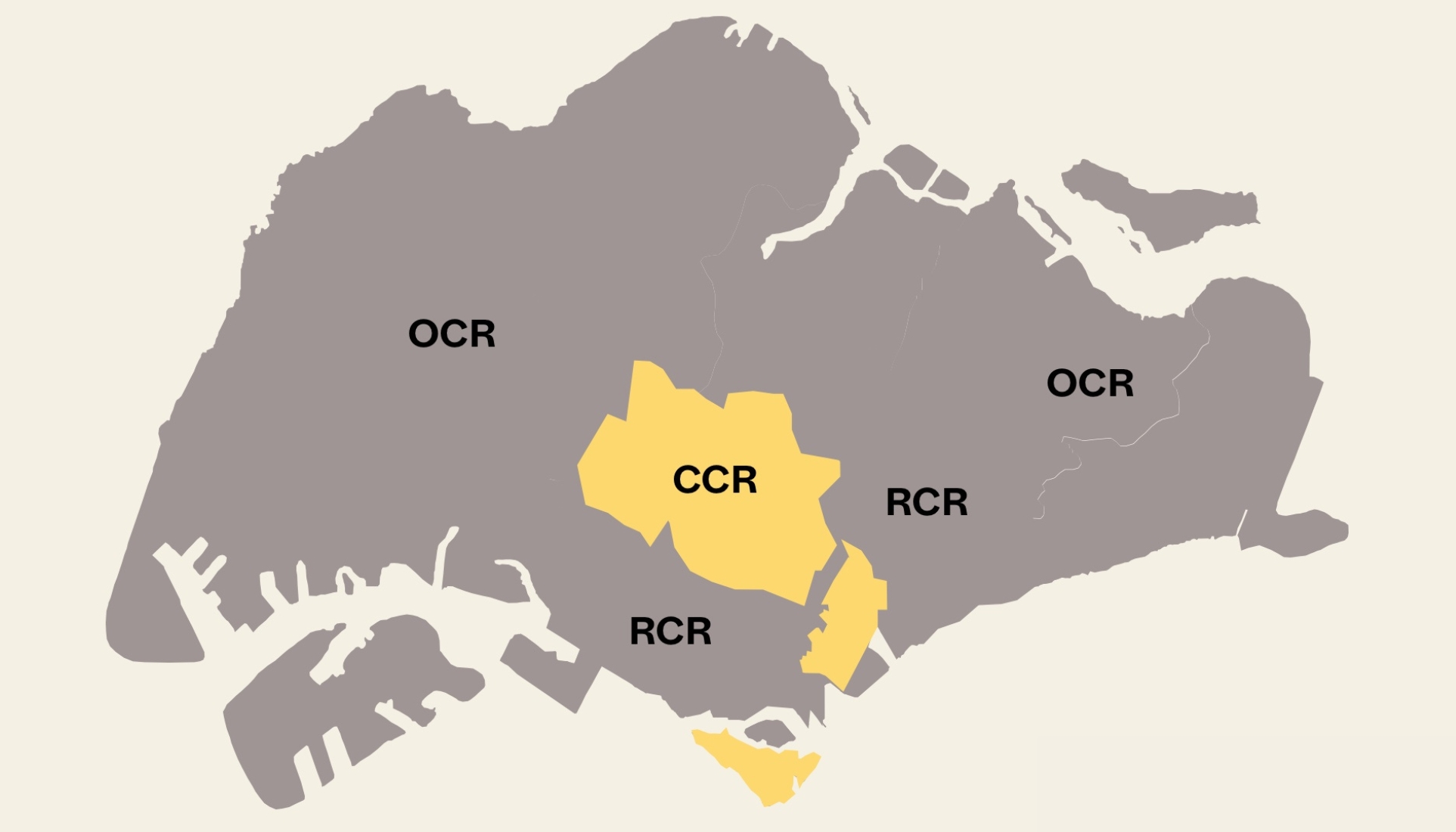
Property Market Commentary Singapore’s Most Expensive Neighbourhoods Are Changing—4 Buyer Trends That Prove It In 2025
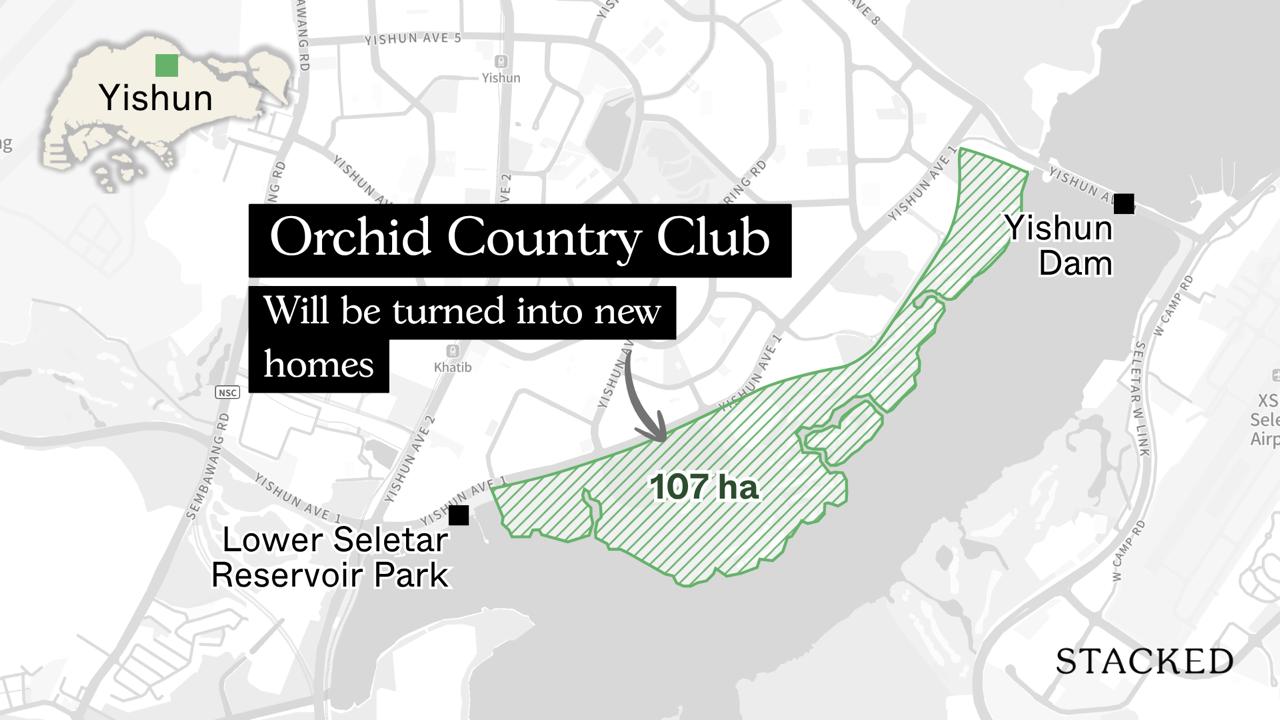
Property Market Commentary URA 2025 Draft Master Plan: 6 Under The Radar Changes You May Have Missed
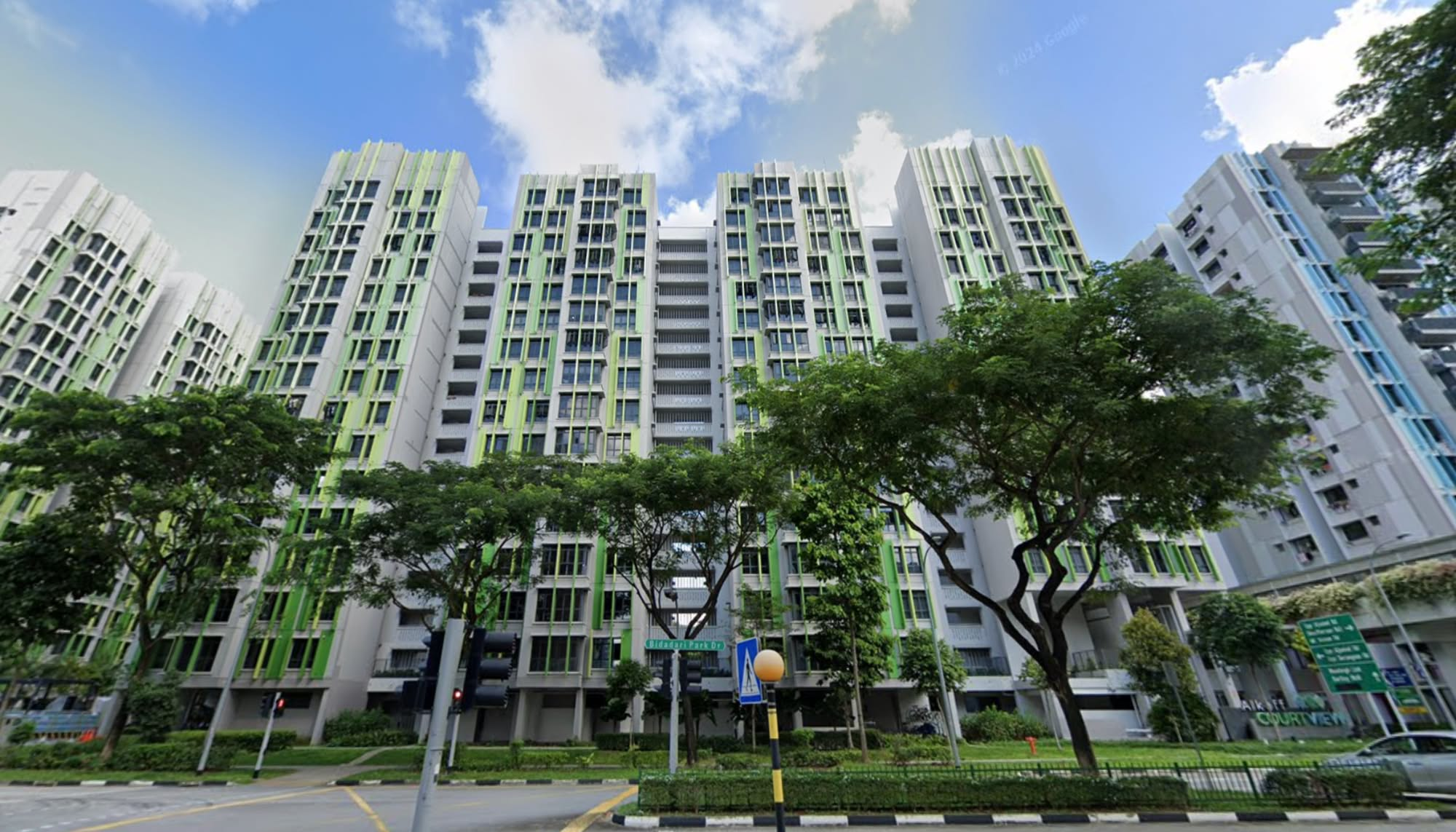
Singapore Property News This 3-Room Flat in Toa Payoh Just Sold for $920K — Here’s What The Seller Could Have Made
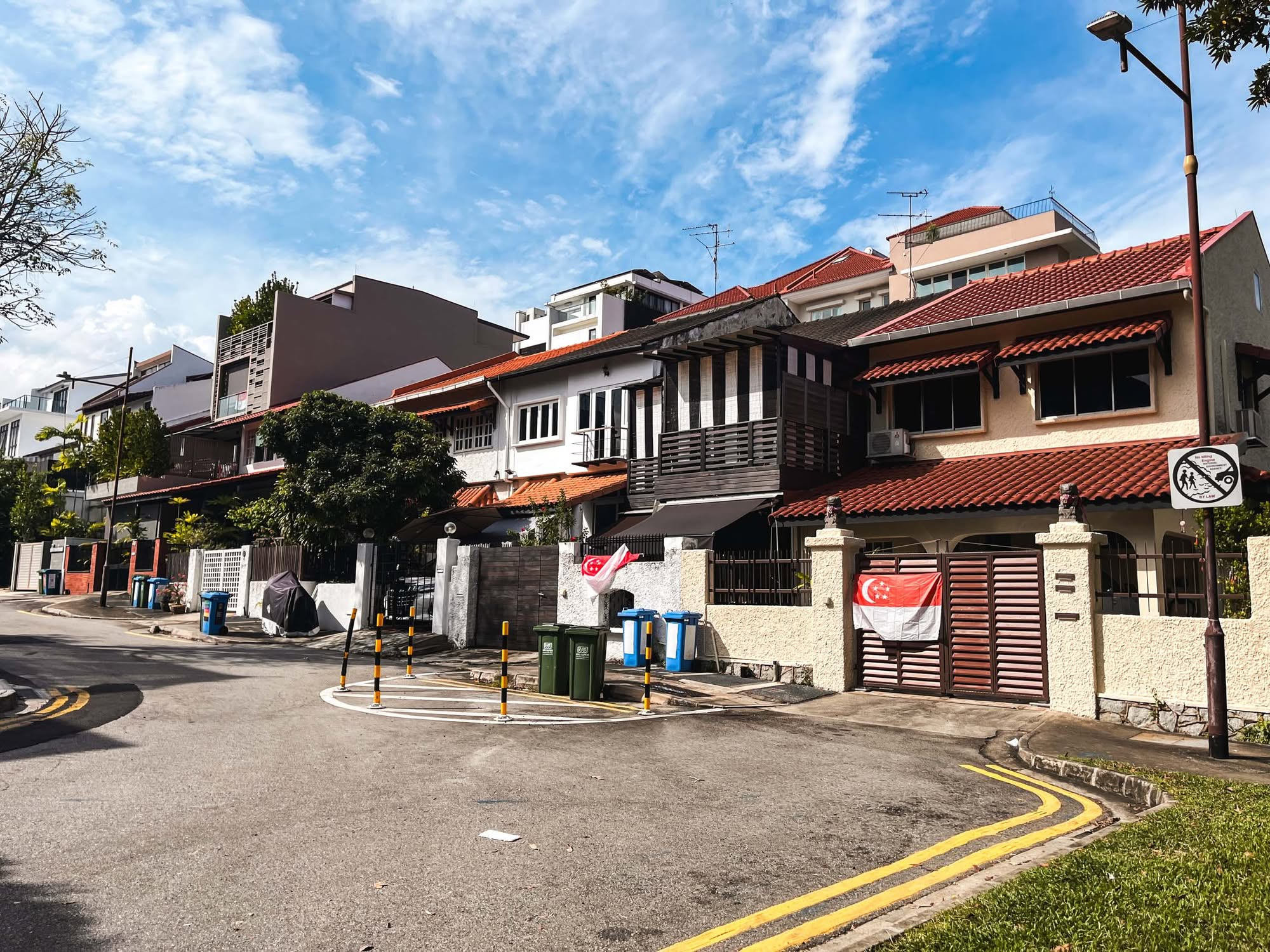
Landed Home Tours We Found Freehold Landed Homes From $4 Million In The East—But Would You Live Here?
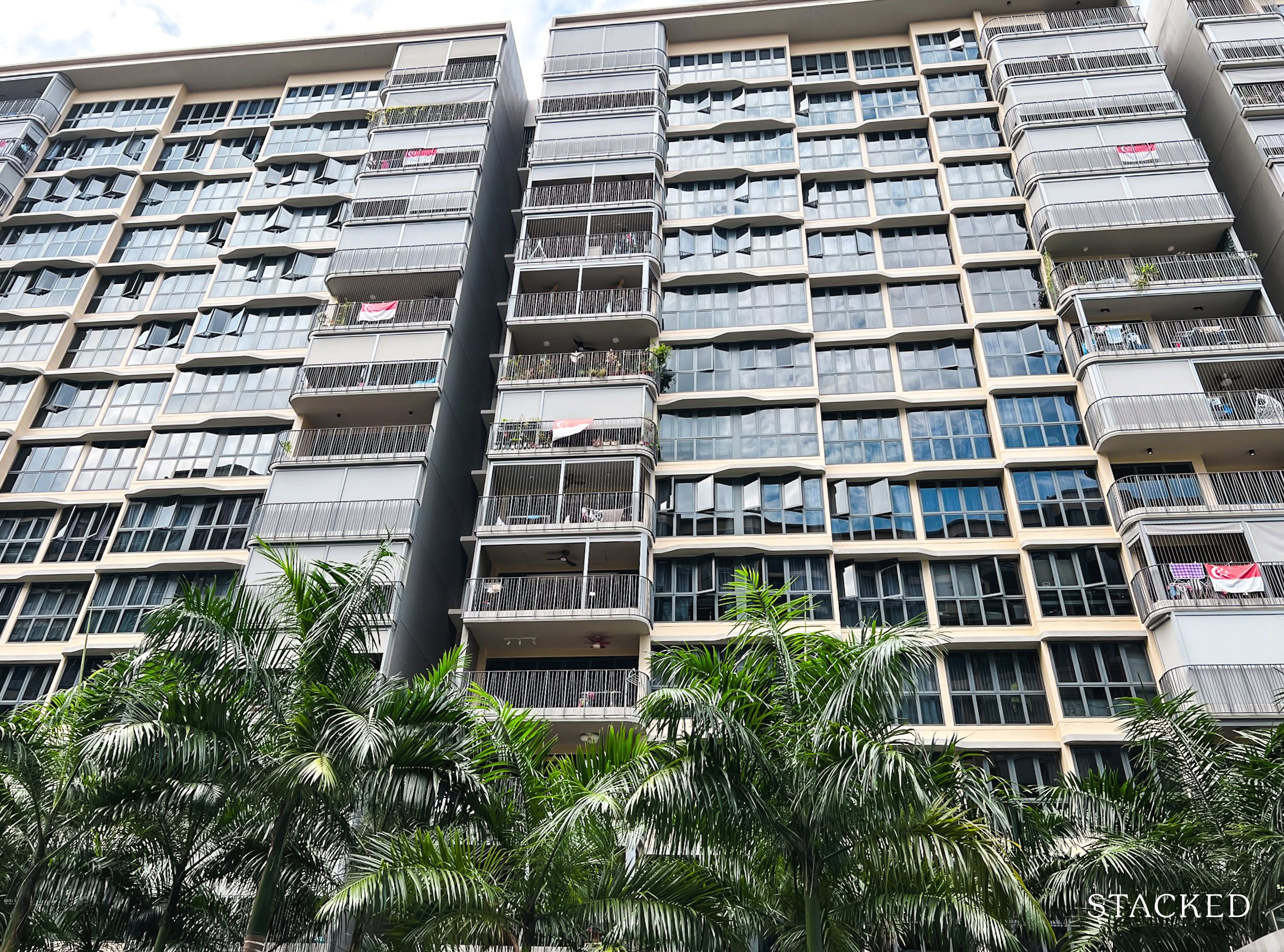
Singapore Property News Would You Still Pay More For A Private Condo, If The EC Next Door Looked The Same?

Overseas Property Investing Why I Bought 7 Properties in Johor Bahru, and Will Still Buy More
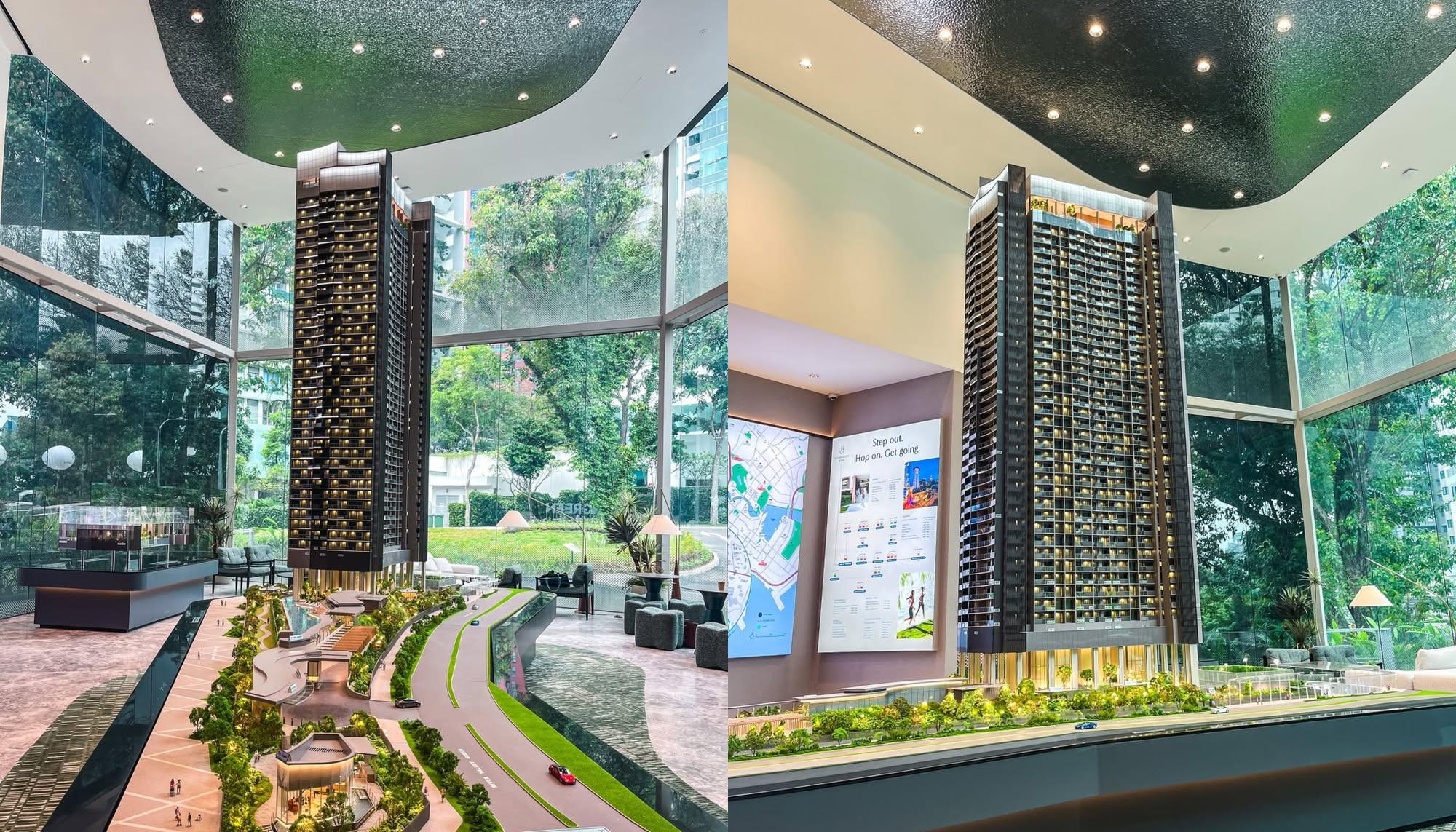
New Launch Condo Reviews River Green Condo Review: Attractive Entry Price To River Valley From $1.2m
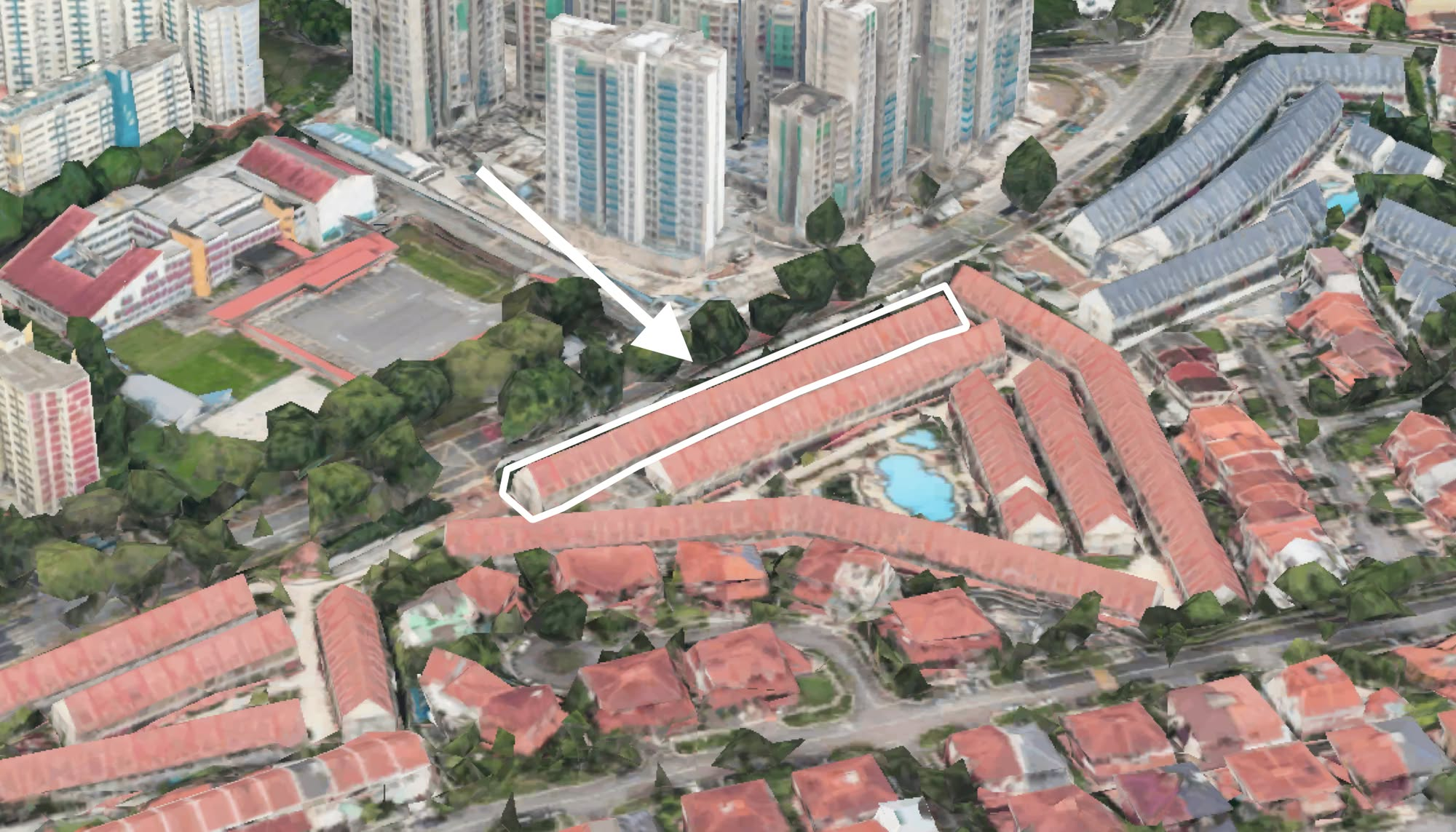
On The Market 5 Spacious Cluster Landed Homes That Cost Less Than You’d Expect (From $2.79M)
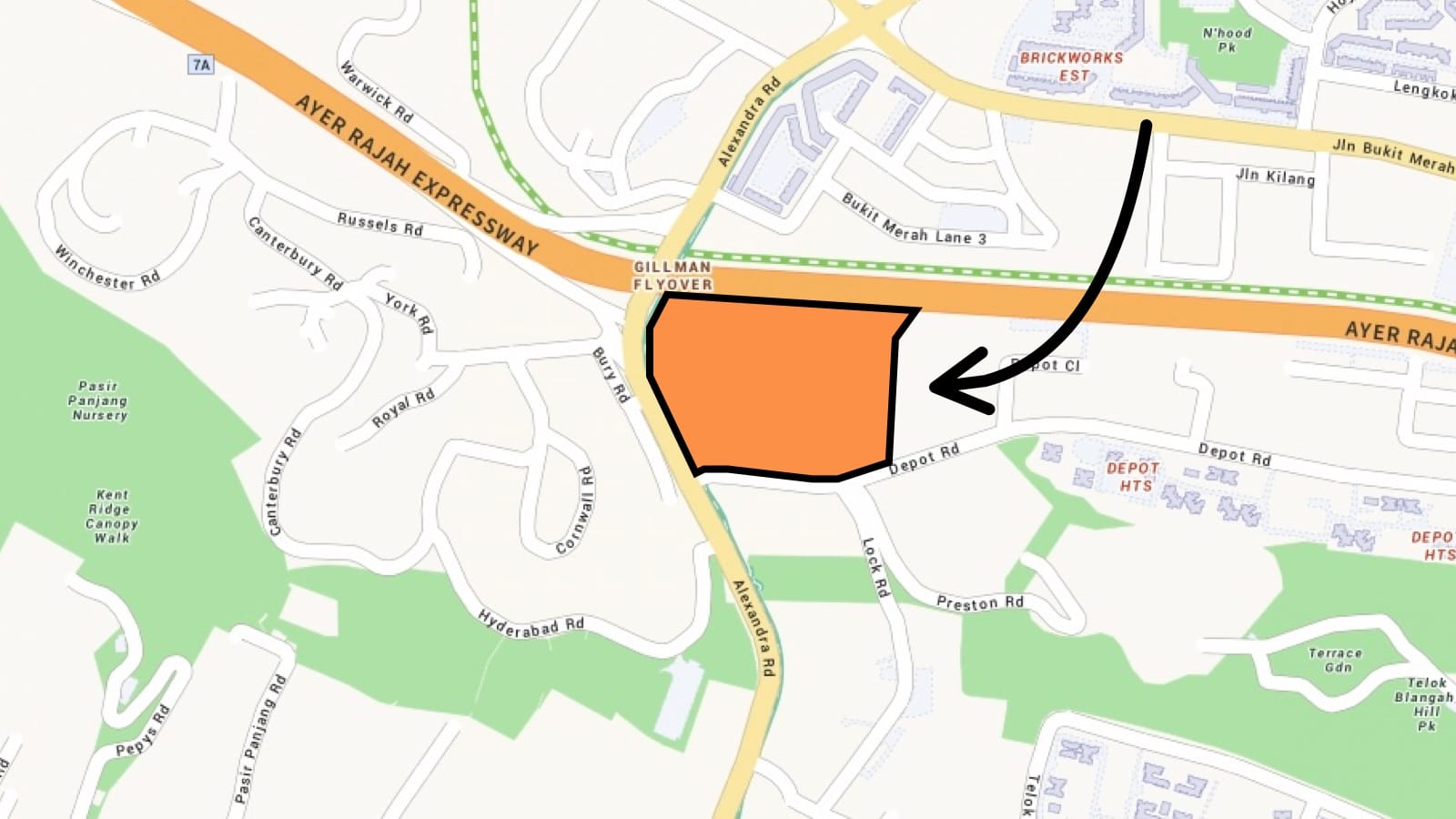
Pro Why The Interlace Condo Underperformed—Despite Its Massive Land Size And Large Units
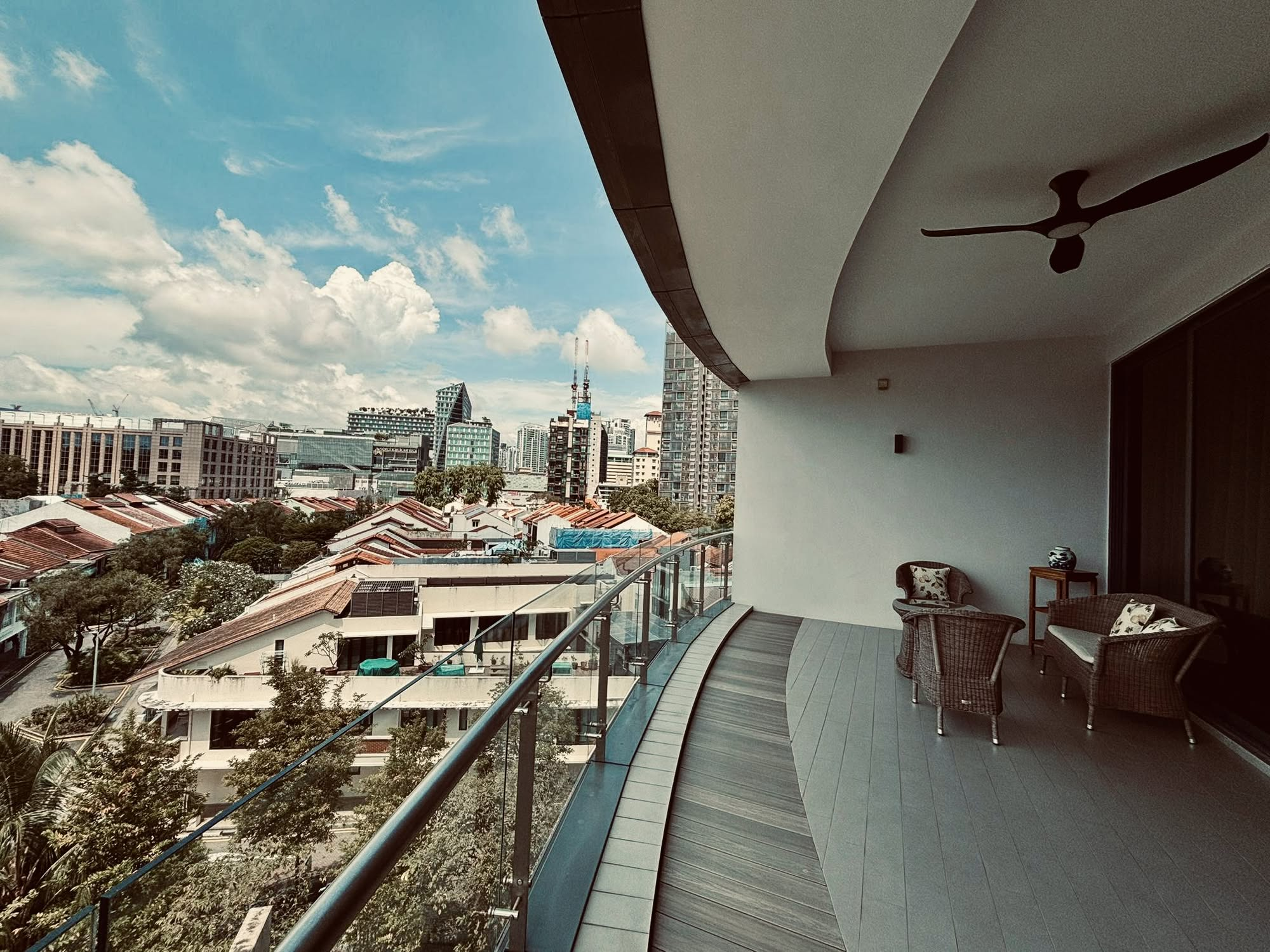
On The Market Spacious 4-Bedroom In Orchard Is On The Market For $6.3M – With a Rare Standout Feature
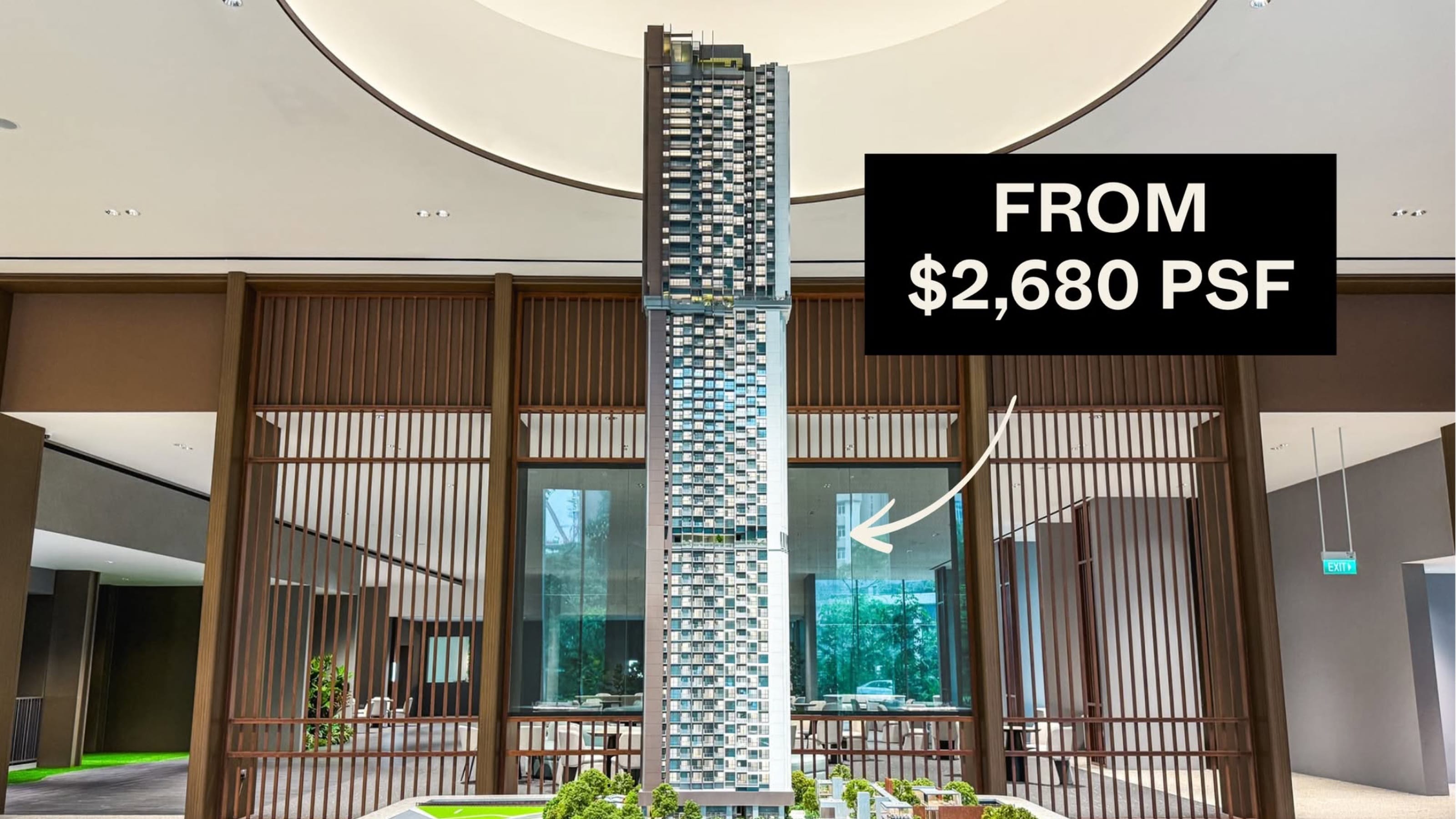
New Launch Condo Analysis Promenade Peak Pricing Breakdown: How It Compares to Nearby Resale and New Launch Condos

Singapore Property News Why July 2025 Could Be the Best Time Yet for Singles and Second-Timers to Apply for a BTO
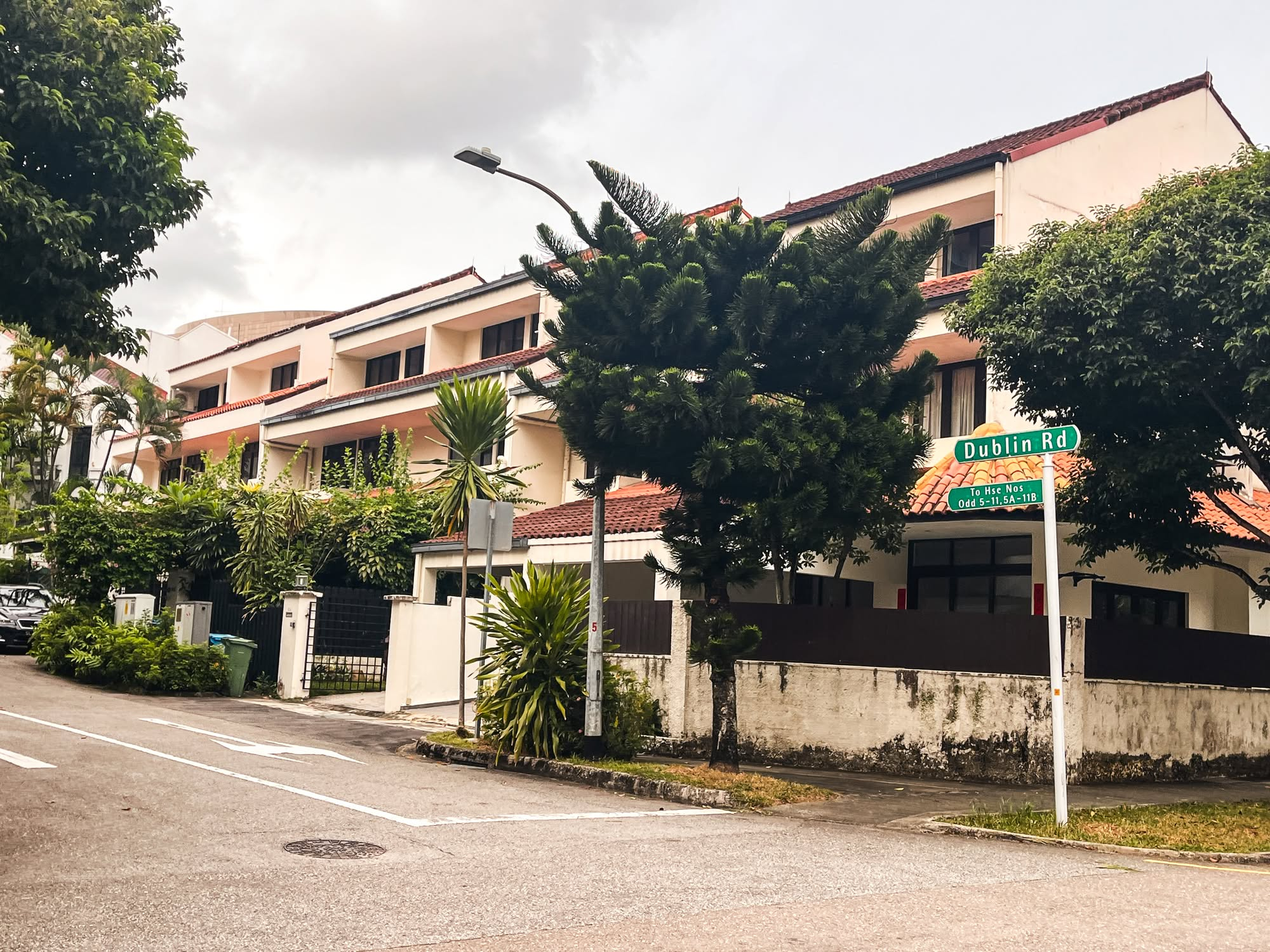


Thinking the same. Can you do a series? What about Portugal, Malaysia, Thailand, Australia..? Keen to know your thoughts. Thanks for above
Thanks for your article. What visa can a retiree get to stay in the UK long term? I used to live in Bristol and really love Bath too.
I live in the US and I’m not too far from retirement age. Seniors in the US are definitely more independent and there are
many retirement communities somewhat similar to the UK. Singapore definitely need to think about expanding the types of retiring homes as the size of aging population increases. Depending on the children is not the way to go. It will burn them out in no time especially people are having less kids nowadays. I hope to retire back in Singapore and will be interested to find out the options available as I’ve no kids. Even if I’ve kids, I do not hope to burden them with my aging problems.
This is a brilliant article. Thank you for posting it as it reflects a very real concern for me and my friends. We are all single, childless and wondering if we should get together to find a place to stay. We have siblings who are married and have children, but we don’t want to be the old batty auntie who has to depend on them for care.
There’s Red Crowns Senior Living here and it’s the closest thing I have seen to the Bath project. Love the idea of being able to rent the guest rooms for visiting friends in the latter example.
Hi what you described is also available in Taiwan. Actually Taiwan has been doing retirement village concepts since 1990s.. and the market seemed matured. I have watched many documentary and news stories on such developments in Taiwan albeit all in mandarin. Check them out as options for myself too. But long term visa is an issue I hope Singapore government would look into these as a springboard for crafting out living options for very active young or old seniors ! Thanks for the article i really enjoyed reading it being a child free young senior 🙂
Are there any private developments in the works for the boomers and gen-zs that will be entering the elderly bracket?
Great article and good to have more of these especially as seniors have savings to invest in these. We don’t just need financial planners who plan your income streams after retirement but aging planners too who can show you options for aging at different stages, tgeir costs and how we can seamlessly transition from independence to greater dependency without major upheaval and paperwork.
Great article. Am on the lookout as well. Theoretically a group of friends can cash out, buy a leasehold landed with elevator together and take half/one floor each. Hire their own nurses and helpers to live in the ground floor. Rounding up that group that can get along and agreeing on how to split maintainence etc. when you’re old and cranky is a challenge. 相处好,同住难。
Still seeing what the private sector will provide in due course. Thinking out loud, some large scale mixed use developments with a lot of small unit sizes (e.g. DUO?) can sell multiple units to a REIT that converts into senior apartments at some point when they hit the 40 year mark and investors exit.
Getting married with kids is expensive and often unless both spouses earn around the same and you never have to deal with divorce you’re financially worse off than being single. Tuition + board for US universities is now $100K per year. Well, parenthood is a sacrifice.
Any tips on Perth property.
How about more detailed information on how to get a long term visa (“life visa” as in for the rest of one’s life) for the countries that are mentioned where one is not a native. I’m a Singaporean and as nice and impressive as different countries’ returement homes and services are painted in, it seems rather pointless if these are just fantasies and visas are not easily attainable, especially if we are talking about retirement ages.